IAITQM Fellows

Fuad Aleskerov (2022)
Biography:
Fuad Aleskerov is the head of Department of Mathematics for Economics, National Research University Higher School of Economics, the head of International Laboratory of Decision Analysis and Choice, National Research University Higher School of Economics and the head of Laboratory of Choice Theory and Decision Analysis, Russian Academy of Sciences, Institute of Control Sciences. He got the PhD degree in Control in Socio--Economic Systems at 1981. He has published 10 books, more than 200 articles, more than 100 in peer-reviewed journals and volumes. He is the member of The Society for Social Choice and Welfare (member of the Council, 2008-2013), International Economic Association (member of the Executive Council, 2011-2017), American Mathematical Society and New Economic Association, Russia. He also participated more than 70 conferences and workshops as the invited speaker.
Fuad Aleskerov is the head of Department of Mathematics for Economics, National Research University Higher School of Economics, the head of International Laboratory of Decision Analysis and Choice, National Research University Higher School of Economics and the head of Laboratory of Choice Theory and Decision Analysis, Russian Academy of Sciences, Institute of Control Sciences. He got the PhD degree in Control in Socio--Economic Systems at 1981. He has published 10 books, more than 200 articles, more than 100 in peer-reviewed journals and volumes. He is the member of The Society for Social Choice and Welfare (member of the Council, 2008-2013), International Economic Association (member of the Executive Council, 2011-2017), American Mathematical Society and New Economic Association, Russia. He also participated more than 70 conferences and workshops as the invited speaker.

Vassil Alexandrov (2022)
Biography:
Vassil Alexandrov is an ICREA Research Professor in Computational Science at BSC since September 2010. He holds a MSc in Applied Mathematics from Moscow State University, Russia (1984) and a PhD in Parallel Computing from Bulgarian Academy of Sciences (1995). He has held previous positions at the University of Liverpool, UK (Depts. of Statistics and Computational Mathematics and Computer Science, 1994-1999), the University of Reading, UK (School of Systems Engineering, 1999-2010, as Professor of Computational Science leading the Computational Science research group until September 2010, and as the Director of the Centre for Advanced Computing and Emerging Technologies until July 2010). He is an Editorial Board member and a Guest Editor of the Journal of Computational Science and Journal of Mathematics and Computers in Simulation. He has published over 120 papers in renowned refereed journals and international conferences in the area of his research expertise.
Vassil Alexandrov is an ICREA Research Professor in Computational Science at BSC since September 2010. He holds a MSc in Applied Mathematics from Moscow State University, Russia (1984) and a PhD in Parallel Computing from Bulgarian Academy of Sciences (1995). He has held previous positions at the University of Liverpool, UK (Depts. of Statistics and Computational Mathematics and Computer Science, 1994-1999), the University of Reading, UK (School of Systems Engineering, 1999-2010, as Professor of Computational Science leading the Computational Science research group until September 2010, and as the Director of the Centre for Advanced Computing and Emerging Technologies until July 2010). He is an Editorial Board member and a Guest Editor of the Journal of Computational Science and Journal of Mathematics and Computers in Simulation. He has published over 120 papers in renowned refereed journals and international conferences in the area of his research expertise.

Daniel Berg (2022)
Biography:
Daniel Berg received his B.S. in Chemistry and Physics from the City College of New York (C.C.N.Y.) and his M.S. and Ph.D. in Physical Chemistry from Yale. He was employed by Westinghouse Electric in a variety of technical/managerial positions including Technical Director. He was Dean and Provost at Carnegie Mellon University (CMU) as well as Provost and President at Rensselaer Polytechnic Institute (RPI) and Institute Professor of Science and Technology. He is a Distinguished Research Professor of Engineering at the University of Miami. He is a Life Fellow of the Institute of Electrical and Electronic Engineers, a Fellow of INFORMS, and a Fellow of the American Association for the Advancement of Science. He is a member of the National Academy of Engineering. He serves as the American Editor of the "International Journal of Services Technology and Management".
Daniel Berg received his B.S. in Chemistry and Physics from the City College of New York (C.C.N.Y.) and his M.S. and Ph.D. in Physical Chemistry from Yale. He was employed by Westinghouse Electric in a variety of technical/managerial positions including Technical Director. He was Dean and Provost at Carnegie Mellon University (CMU) as well as Provost and President at Rensselaer Polytechnic Institute (RPI) and Institute Professor of Science and Technology. He is a Distinguished Research Professor of Engineering at the University of Miami. He is a Life Fellow of the Institute of Electrical and Electronic Engineers, a Fellow of INFORMS, and a Fellow of the American Association for the Advancement of Science. He is a member of the National Academy of Engineering. He serves as the American Editor of the "International Journal of Services Technology and Management".

Francisco Javier Cabrerizo (2022)
Biography:
Francisco Javier Cabrerizo was born in Jódar, Jaén, Spain, in 1983. He received his M.S. and PhD degrees in computer science from the University of Granada, Spain, in 2006 and 2008, respectively.
From 2008 to 2016, he was an Assistant Professor at the Department of Software Engineering and Computer Systems, National Distance Education University (UNED), Madrid, Spain. Since 2016, he has been an Associate Professor with the Department of Computer Science and Artificial Intelligence, University of Granada, Spain. He is an Associate Editor of IEEE Transactions on Cybernetics, Journal of Intelligent & Fuzzy Systems, and International Journal of Information Technology & Decision Making. He has published extensively in leading international journals, and several of his papers (currently 10) are classified as Highly Cited Papers in Essential Science Indicators from Clarivate Analytics. His h-index is 33 and he presents more than 5500 citations in Web of Science from Clarivate Analytics. He has been identified as a Highly Cited Researcher by Clarivate Analytics from 2018 to 2022. His research interest includes fuzzy decision-making, decision support systems, consensus models, linguistic modelling, aggregation of information, digital libraries, web quality evaluation, and bibliometrics.
Dr Cabrerizo's awards and honors include the ISDA 2009 Conference Best Paper Award, the ICSEE 2015 Conference Best Paper Award, the ICCCC 2022 Conferencee Best Paper Award, the 2014 Herbert Simon Award for outstanding contribution to the International Journal of Information Technology & decision-making, and the 2016 Andrew P. Sage Best Transactions Paper Award, which recognizes the authors of the best paper published annually in IEEE Transactions on Systems, Man, and Cybernetics: Systems. In addition, in 2022, he was elected as IAITQM Fellow.
Francisco Javier Cabrerizo was born in Jódar, Jaén, Spain, in 1983. He received his M.S. and PhD degrees in computer science from the University of Granada, Spain, in 2006 and 2008, respectively.
From 2008 to 2016, he was an Assistant Professor at the Department of Software Engineering and Computer Systems, National Distance Education University (UNED), Madrid, Spain. Since 2016, he has been an Associate Professor with the Department of Computer Science and Artificial Intelligence, University of Granada, Spain. He is an Associate Editor of IEEE Transactions on Cybernetics, Journal of Intelligent & Fuzzy Systems, and International Journal of Information Technology & Decision Making. He has published extensively in leading international journals, and several of his papers (currently 10) are classified as Highly Cited Papers in Essential Science Indicators from Clarivate Analytics. His h-index is 33 and he presents more than 5500 citations in Web of Science from Clarivate Analytics. He has been identified as a Highly Cited Researcher by Clarivate Analytics from 2018 to 2022. His research interest includes fuzzy decision-making, decision support systems, consensus models, linguistic modelling, aggregation of information, digital libraries, web quality evaluation, and bibliometrics.
Dr Cabrerizo's awards and honors include the ISDA 2009 Conference Best Paper Award, the ICSEE 2015 Conference Best Paper Award, the ICCCC 2022 Conferencee Best Paper Award, the 2014 Herbert Simon Award for outstanding contribution to the International Journal of Information Technology & decision-making, and the 2016 Andrew P. Sage Best Transactions Paper Award, which recognizes the authors of the best paper published annually in IEEE Transactions on Systems, Man, and Cybernetics: Systems. In addition, in 2022, he was elected as IAITQM Fellow.

Chen Jian (2022)
Biography:
Chen Jian is Lenovo Chair Professor and Chairman of Management Science Department, Director of Research Center for Contemporary Management, Tsinghua University. He received the B.Sc. degree in Electrical Engineering from Tsinghua University, Beijing, China, in 1983, and the M.Sc. and the Ph.D. degree both in Systems Engineering from the same University in 1986 and 1989, respectively. His main research interests include systems engineering, supply chain management, E-commerce, decision analyses and support systems. Dr. Chen has published over 200 papers in refereed journals and has been a principal investigator for about 50 grants or research contracts with National Science Foundation of China, governmental organizations and companies. He has been invited to present several plenary lectures at international conferences. He is the recipient of Ministry of Education Changjiang Scholars, Fudan Management Excellence Award, IBM Faculty Award, the Outstanding Contribution Award of IEEE Systems, Man and Cybernetics Society, Daniel Berg Award of International Academy of Information Technology and Quantitative Management. He has been elected as a Fellow of IEEE, an Academician of Academy for Systems and Cybernetics Sciences (IASCYS), a Fellow of Asia-Pacific Artificial Intelligence Association (AAIA) and a Fellow of International Academy on Information Technology and Quantitative Management. He serves/served as a Regional VP of the Production and Operations Management Society (2010-2012), Chairman of the Service Systems and Organizations Technical Committee of IEEE Systems, Man and Cybernetics Society(2002-), Vice President of Systems Engineering Society of China(2006-2014), Vice President of China Society for Optimization and Overall Planning(2006-2014), a member of the Standing Committee of China Information Industry Association(1998-2016), Vice President of Chinese Research Council of Modern Management(2016-2020) and Vice President of Management Science and Engineering of China (2017-). He also serves/served as editor-in-chief/area editor/associate editor/editorial board member/advisory board member for many international journals.
Chen Jian is Lenovo Chair Professor and Chairman of Management Science Department, Director of Research Center for Contemporary Management, Tsinghua University. He received the B.Sc. degree in Electrical Engineering from Tsinghua University, Beijing, China, in 1983, and the M.Sc. and the Ph.D. degree both in Systems Engineering from the same University in 1986 and 1989, respectively. His main research interests include systems engineering, supply chain management, E-commerce, decision analyses and support systems. Dr. Chen has published over 200 papers in refereed journals and has been a principal investigator for about 50 grants or research contracts with National Science Foundation of China, governmental organizations and companies. He has been invited to present several plenary lectures at international conferences. He is the recipient of Ministry of Education Changjiang Scholars, Fudan Management Excellence Award, IBM Faculty Award, the Outstanding Contribution Award of IEEE Systems, Man and Cybernetics Society, Daniel Berg Award of International Academy of Information Technology and Quantitative Management. He has been elected as a Fellow of IEEE, an Academician of Academy for Systems and Cybernetics Sciences (IASCYS), a Fellow of Asia-Pacific Artificial Intelligence Association (AAIA) and a Fellow of International Academy on Information Technology and Quantitative Management. He serves/served as a Regional VP of the Production and Operations Management Society (2010-2012), Chairman of the Service Systems and Organizations Technical Committee of IEEE Systems, Man and Cybernetics Society(2002-), Vice President of Systems Engineering Society of China(2006-2014), Vice President of China Society for Optimization and Overall Planning(2006-2014), a member of the Standing Committee of China Information Industry Association(1998-2016), Vice President of Chinese Research Council of Modern Management(2016-2020) and Vice President of Management Science and Engineering of China (2017-). He also serves/served as editor-in-chief/area editor/associate editor/editorial board member/advisory board member for many international journals.
Felisa Córdova (2022)
Biography:
Graduated Electrical Engineer at the University of Santiago de Chile USACH. She obtained the Diplome d´Etudes Approfondis in Electronics and the degree of Docteur Ingénieur at the University of Paris XI, France. Actually, she is profesor and Research Director of the Faculty of Engineering, Architecture and Design, at University San Sebastián USS, Santiago, Chile. She was professor and Director of the School of Engineering at the Faculty of Engineering, University Finis Terrae UFT, Santiago, Chile. She was professor, Academic Vice Rector and Director of the Industrial Engineering Department at the Faculty of Engineering, University of Santiago de Chile USACH. She was also Director of the Master of Science Engineering Program and Header of Management Area of the Industrial Engineering Department at the Faculty of Physical and Mathematical Sciences, University of Chile. Her main research interest is in Business Strategy, Operations Management, Knowledge and Neuromanagement. She has participated in several national and international research projects in the fields of Robotics, AGV and Virtual Operation Systems in underground mining, also in ports. She has published many papers in conference proceedings and international indexed journals in the area of Robotics, Operation Management, Knowledge and Neuromanagement. She has participated in the organization of national and international Conferences (CES, IEEE ICA-ACCA, LCA, LCR, SEPROSUL, ICPR, Latincon, ITQM). She was past-president of the Chilean Association of Automatic Control ACCA and she was national councilor, President of the Education Committee and past Vice President of the College of Engineers of Chile. She participated as an institutional accreditation evaluator at the CNA, Chile and also in the CEAB accreditation (Washington Accord) to engineering programs, Canada. She was member of the accreditation board and now she is member of the Directory of Acredita CI.
Graduated Electrical Engineer at the University of Santiago de Chile USACH. She obtained the Diplome d´Etudes Approfondis in Electronics and the degree of Docteur Ingénieur at the University of Paris XI, France. Actually, she is profesor and Research Director of the Faculty of Engineering, Architecture and Design, at University San Sebastián USS, Santiago, Chile. She was professor and Director of the School of Engineering at the Faculty of Engineering, University Finis Terrae UFT, Santiago, Chile. She was professor, Academic Vice Rector and Director of the Industrial Engineering Department at the Faculty of Engineering, University of Santiago de Chile USACH. She was also Director of the Master of Science Engineering Program and Header of Management Area of the Industrial Engineering Department at the Faculty of Physical and Mathematical Sciences, University of Chile. Her main research interest is in Business Strategy, Operations Management, Knowledge and Neuromanagement. She has participated in several national and international research projects in the fields of Robotics, AGV and Virtual Operation Systems in underground mining, also in ports. She has published many papers in conference proceedings and international indexed journals in the area of Robotics, Operation Management, Knowledge and Neuromanagement. She has participated in the organization of national and international Conferences (CES, IEEE ICA-ACCA, LCA, LCR, SEPROSUL, ICPR, Latincon, ITQM). She was past-president of the Chilean Association of Automatic Control ACCA and she was national councilor, President of the Education Committee and past Vice President of the College of Engineers of Chile. She participated as an institutional accreditation evaluator at the CNA, Chile and also in the CEAB accreditation (Washington Accord) to engineering programs, Canada. She was member of the accreditation board and now she is member of the Directory of Acredita CI.

Shu-Cherng Fang (2022)
Biography:
Dr. Shu-Cherng Fang holds the Walter Clark Chair and University Alumni Distinguished Graduate Professorship in the Industrial and Systems Engineering Department of the North Carolina State University, USA. He has been appointed as the University Chair Professor of Tsinghua University (Beijing), Honorary University Professor of Northeast University (Shenyang), Honorary University Professor of Shanghai University (Shanghai), Honorary University Professor of Fudan University (Shanghai), Graduate University Advisory Professor of the Chinese Academy of Sciences (Beijing), Honorary University Chair Professor of the National Chiao Tung University (Taiwan) and Honorary IEEM Chair Professor of the National Tsing Hua University (Taiwan). Before joining NC State, Dr. Fang was Senior Member of Research Staff at Western Electric Engineering Research Center, Supervisor at AT&T Bell Labs, and Department Manager at the Corporate Headquarters of AT&T Technologies.
Professor Fang has published over two hundred fifty refereed journal articles. He authored the books of Linear Optimization and Extensions: Theory and Algorithms (Prentice Hall 1993, with S. C. Puthenpura), Entropy Optimization and Mathematical Programming (Kluwer Academic 1997, with J.R. Rajasekera and H.-S. Tsao), Linear Conic Optimization (Science Press 2013, with Wenxun Xing) and Introduction to Linear Conic Optimization (Tsinghua University Press 2020, with Wenxun Xing). He is the Founding Editor-in-Chief of Fuzzy Optimization and Decision Making and currently serving on the editorial boards of many scientific journals in Operations Research, Industrial & Systems Engineering, and Management Sciences.
Professor Fang has won many awards and has been listed in several major biographic references. He was elected to Fellow of the Institute of Industrial and Systems Engineers in 2002 and Fellow of the Chinese Institute of Industrial Engineers in 2015. The most recent honor he received is the 2019 Siwei Cheng Award in Quantitative Management of the International Academy of Information Technology and Quantitative Management.
Dr. Shu-Cherng Fang holds the Walter Clark Chair and University Alumni Distinguished Graduate Professorship in the Industrial and Systems Engineering Department of the North Carolina State University, USA. He has been appointed as the University Chair Professor of Tsinghua University (Beijing), Honorary University Professor of Northeast University (Shenyang), Honorary University Professor of Shanghai University (Shanghai), Honorary University Professor of Fudan University (Shanghai), Graduate University Advisory Professor of the Chinese Academy of Sciences (Beijing), Honorary University Chair Professor of the National Chiao Tung University (Taiwan) and Honorary IEEM Chair Professor of the National Tsing Hua University (Taiwan). Before joining NC State, Dr. Fang was Senior Member of Research Staff at Western Electric Engineering Research Center, Supervisor at AT&T Bell Labs, and Department Manager at the Corporate Headquarters of AT&T Technologies.
Professor Fang has published over two hundred fifty refereed journal articles. He authored the books of Linear Optimization and Extensions: Theory and Algorithms (Prentice Hall 1993, with S. C. Puthenpura), Entropy Optimization and Mathematical Programming (Kluwer Academic 1997, with J.R. Rajasekera and H.-S. Tsao), Linear Conic Optimization (Science Press 2013, with Wenxun Xing) and Introduction to Linear Conic Optimization (Tsinghua University Press 2020, with Wenxun Xing). He is the Founding Editor-in-Chief of Fuzzy Optimization and Decision Making and currently serving on the editorial boards of many scientific journals in Operations Research, Industrial & Systems Engineering, and Management Sciences.
Professor Fang has won many awards and has been listed in several major biographic references. He was elected to Fellow of the Institute of Industrial and Systems Engineers in 2002 and Fellow of the Chinese Institute of Industrial Engineers in 2015. The most recent honor he received is the 2019 Siwei Cheng Award in Quantitative Management of the International Academy of Information Technology and Quantitative Management.

Florin Gheorghe Filip (2022)
Biography:
Florin Gheorghe Filip was born in 1947 in Bucharest, Romania. He graduated in Control Engineering at Politehnica University of Bucharest in 1970, and received his PhD degree from the same university in 1982. He was elected as corresponding member of the Romanian Academy in 1991, and became full member of the Academy in 1999. During 2000-2010, he was vice-president of the Academy (elected in 2000, re-elected in 2004, and 2006). In 2010, he was elected president of the Information Science and Technology section of the Academy (re-elected in 2015, and 2019). He was the managing director of National Institute for R&D in Informatics-ICI Bucharest (1991-1997). He is honorary member of the Romanian Academy of Technical Sciences, and Academy of Sciences of Moldova. He was the chair of IFAC TC 5.4 (Large-scale Complex Systems) from 2002 to 2008. His main scientific interests include optimization and control of large-scale complex/collaborative systems, decision support systems, technology management and foresight, and IT applications in the cultural sector. He authored/co-authored over 350 papers published in international journals (IFAC J Automatica, IFAC J Control Engineering Practice, Annual Reviews in Control, Computers in Industry, Technological and Economic Development of Economy, and so on) and contributed to volumes printed by international publishing houses (Pergamon, Elsevier, Kluwer, Chapman & Hall, and so on). He is also the author/co-author of thirteen monographs published in Romanian, English, and French by Editura Tehnică, Hermès-Lavoisier, J. Wiley & Sons, Springer, and editor/co-editor of 33 volumes of contributions (published by Editura Academiei Române, Pergamon, North Holland, Elsevier, IEEE Computer Society, and so on). He presented invited lectures in universities and research institutes, and plenary papers at scientific conferences in Brazil, Chile, China, France, Germany, Lithuania, Poland, Portugal, Republic of Moldova, Romania, Spain, Sweden, Tunisia, and UK.
More details can be found at: https://academiaromana.ro/cv/FilipF/FGF-CV-en.pdf .
Florin Gheorghe Filip was born in 1947 in Bucharest, Romania. He graduated in Control Engineering at Politehnica University of Bucharest in 1970, and received his PhD degree from the same university in 1982. He was elected as corresponding member of the Romanian Academy in 1991, and became full member of the Academy in 1999. During 2000-2010, he was vice-president of the Academy (elected in 2000, re-elected in 2004, and 2006). In 2010, he was elected president of the Information Science and Technology section of the Academy (re-elected in 2015, and 2019). He was the managing director of National Institute for R&D in Informatics-ICI Bucharest (1991-1997). He is honorary member of the Romanian Academy of Technical Sciences, and Academy of Sciences of Moldova. He was the chair of IFAC TC 5.4 (Large-scale Complex Systems) from 2002 to 2008. His main scientific interests include optimization and control of large-scale complex/collaborative systems, decision support systems, technology management and foresight, and IT applications in the cultural sector. He authored/co-authored over 350 papers published in international journals (IFAC J Automatica, IFAC J Control Engineering Practice, Annual Reviews in Control, Computers in Industry, Technological and Economic Development of Economy, and so on) and contributed to volumes printed by international publishing houses (Pergamon, Elsevier, Kluwer, Chapman & Hall, and so on). He is also the author/co-author of thirteen monographs published in Romanian, English, and French by Editura Tehnică, Hermès-Lavoisier, J. Wiley & Sons, Springer, and editor/co-editor of 33 volumes of contributions (published by Editura Academiei Române, Pergamon, North Holland, Elsevier, IEEE Computer Society, and so on). He presented invited lectures in universities and research institutes, and plenary papers at scientific conferences in Brazil, Chile, China, France, Germany, Lithuania, Poland, Portugal, Republic of Moldova, Romania, Spain, Sweden, Tunisia, and UK.
More details can be found at: https://academiaromana.ro/cv/FilipF/FGF-CV-en.pdf .

Fred Glover (2022)
Biography:
Dr. Fred Glover is an Emeritus professor at the University of Colorado at Boulder where he holds the title of Distinguished Professor in the School of Engineering and Applied Science and the Leeds School of Business. He serves as the Chief Technology Officer in charge of algorithmic design and strategic planning initiatives for OptTek Systems, Inc., in Boulder, Colorado. Dr. Glover is widely known for his work in the applications of computer decision support systems, including industrial planning, financial analysis, systems design, energy and natural resources planning, logistics, transportation and large-scale allocation models. He has authored or co-authored more than 470 published articles and eight books in the fields of mathematical optimization, computer science and artificial intelligence.
Dr. Glover is the recipient of the highest honor of the Institute of Operations Research and Management Science, the von Neumann Theory Prize, and is an elected member of the National Academy of Engineering. He has also received numerous other awards and honorary fellowships from organizations around the world.
Dr. Fred Glover is an Emeritus professor at the University of Colorado at Boulder where he holds the title of Distinguished Professor in the School of Engineering and Applied Science and the Leeds School of Business. He serves as the Chief Technology Officer in charge of algorithmic design and strategic planning initiatives for OptTek Systems, Inc., in Boulder, Colorado. Dr. Glover is widely known for his work in the applications of computer decision support systems, including industrial planning, financial analysis, systems design, energy and natural resources planning, logistics, transportation and large-scale allocation models. He has authored or co-authored more than 470 published articles and eight books in the fields of mathematical optimization, computer science and artificial intelligence.
Dr. Glover is the recipient of the highest honor of the Institute of Operations Research and Management Science, the von Neumann Theory Prize, and is an elected member of the National Academy of Engineering. He has also received numerous other awards and honorary fellowships from organizations around the world.

Luiz Flavio Autran Monteiro Gomes (2022)
Biography:
PhD in Engineering, University of California, Berkeley, 1976. MS in Engineering, Michigan State University, 1970. Civil Engineer, Pontifical Catholic University of Rio de Janeiro, 1968. Visiting Researcher, Universittaet Stuttgart, 1985-1986. Fellow of IAITQM, 2022. Siwei Cheng Award, IAITQM, 2018. Co-organizer of ITQM in 2015. Visiting lecturerships in various universities in different countries. Professor of Management in the Ibmec University Center, in Rio de Janeiro, since 2000. Has authored more than 200 papers and served as academic advisor of about 200 theses and dissertations. Member of the National Academy of Engineering (Brazil), since 1991. Main scientific interests are Multi-Criteria Decision Analysis and Information Technology and Quantitative Management-oriented Management Science. Pioneer in the domain of teaching Multi-Criteria Decision Analysis in Brazil, being the creator of the original TODIM method in the early 90s. Member of the National Academy of Engineering (Brazil), since 1991. Main scientific interests are Multi- Decision Analysis and Management Science Criteria.
PhD in Engineering, University of California, Berkeley, 1976. MS in Engineering, Michigan State University, 1970. Civil Engineer, Pontifical Catholic University of Rio de Janeiro, 1968. Visiting Researcher, Universittaet Stuttgart, 1985-1986. Fellow of IAITQM, 2022. Siwei Cheng Award, IAITQM, 2018. Co-organizer of ITQM in 2015. Visiting lecturerships in various universities in different countries. Professor of Management in the Ibmec University Center, in Rio de Janeiro, since 2000. Has authored more than 200 papers and served as academic advisor of about 200 theses and dissertations. Member of the National Academy of Engineering (Brazil), since 1991. Main scientific interests are Multi-Criteria Decision Analysis and Information Technology and Quantitative Management-oriented Management Science. Pioneer in the domain of teaching Multi-Criteria Decision Analysis in Brazil, being the creator of the original TODIM method in the early 90s. Member of the National Academy of Engineering (Brazil), since 1991. Main scientific interests are Multi- Decision Analysis and Management Science Criteria.

Jifa Gu (2022)
Biography:
Jifa Gu is Professor of Operations Research and Systems Engineering in the Institute of Systems Science, within the Academy of Mathematics and Systems Science, CAS (Chinese Academy of Sciences). He is also an Academician of the International Academy for Systems and Cybernetic Sciences and an Academician of International Eurasian Academy of Sciences. His earlier work focused on the theoretical research and applications of operations research, systems engineering in the fields of missile, energy, water resources, regional development, and global change. He has completed evaluations of projects and organizations, Gu's recent work has focused on the topics of a meta-synthesis systems approach expert mining and research on consensus, recently focusing on social systems and traditional Chinese medicine. He has participated in several national research programs related to social issues. He had got a lot of awards from State and ministries, Scott awards from IAITQM.
He is particularly known for his proposal of the Wu-li Shi-li Ren-li systems approach, which have widely applied in various domain both in China and outside. Professor Gu served as the president of Systems Engineering Society of China from 1994 to 2002; Chairman of International Federation for Systems research (IFSR) in 2002-2006, In 2022 he was elected as Fellow of IFSR. he has authored more than 200 papers and over 30 books.
Jifa Gu is Professor of Operations Research and Systems Engineering in the Institute of Systems Science, within the Academy of Mathematics and Systems Science, CAS (Chinese Academy of Sciences). He is also an Academician of the International Academy for Systems and Cybernetic Sciences and an Academician of International Eurasian Academy of Sciences. His earlier work focused on the theoretical research and applications of operations research, systems engineering in the fields of missile, energy, water resources, regional development, and global change. He has completed evaluations of projects and organizations, Gu's recent work has focused on the topics of a meta-synthesis systems approach expert mining and research on consensus, recently focusing on social systems and traditional Chinese medicine. He has participated in several national research programs related to social issues. He had got a lot of awards from State and ministries, Scott awards from IAITQM.
He is particularly known for his proposal of the Wu-li Shi-li Ren-li systems approach, which have widely applied in various domain both in China and outside. Professor Gu served as the president of Systems Engineering Society of China from 1994 to 2002; Chairman of International Federation for Systems research (IFSR) in 2002-2006, In 2022 he was elected as Fellow of IFSR. he has authored more than 200 papers and over 30 books.

Alexander Karminsky (2022)
Biography:
Alexander Karminsky - Tenured professor, Doctor of Science (in Technic and in Economics), member of Russian Academy of Natural Sciences, Research Professor of National Research University Higher School of Economic, Moscow, Russia. He is leader of scientific laboratory of financial innovation and risk management.
Prof. A. Karminsky scientific interests connected with Banking and Finance, Rating systems, Modelling, AI and Econometrics, Informatization, Financial innovation, Optimization, Business analytics, Risk Management and Controlling, Sustainable development. He is the author of more than 30 monographs and 300 papers in these directions. Fifteen PhD Students have finished there PhD thesis with prof. Alexander Karminsky as supervisor.
His scientific specialization consists of assessing the credit risk of banking organizations by building models of credit ratings and the probability of default using artificial intelligence and econometrics approaches. Particular attention in the modeling given to macroeconomic and institutional factors that reflect the degree of innovation and sustainable development. In addition, the results obtained at the micro level extrapolated to the macro level in order to study systemic risks and macroprudential regulation of the banking system as a whole.
Among the main results are the following:
Alexander Karminsky - Tenured professor, Doctor of Science (in Technic and in Economics), member of Russian Academy of Natural Sciences, Research Professor of National Research University Higher School of Economic, Moscow, Russia. He is leader of scientific laboratory of financial innovation and risk management.
Prof. A. Karminsky scientific interests connected with Banking and Finance, Rating systems, Modelling, AI and Econometrics, Informatization, Financial innovation, Optimization, Business analytics, Risk Management and Controlling, Sustainable development. He is the author of more than 30 monographs and 300 papers in these directions. Fifteen PhD Students have finished there PhD thesis with prof. Alexander Karminsky as supervisor.
His scientific specialization consists of assessing the credit risk of banking organizations by building models of credit ratings and the probability of default using artificial intelligence and econometrics approaches. Particular attention in the modeling given to macroeconomic and institutional factors that reflect the degree of innovation and sustainable development. In addition, the results obtained at the micro level extrapolated to the macro level in order to study systemic risks and macroprudential regulation of the banking system as a whole.
Among the main results are the following:
- Improved current bank credit risk models;
- An aggregative rating system has been compiled that allows interpreting and comparing the assessments of various rating agencies;
- Initiatives for macroprudential regulation of the banking system have been formulated.
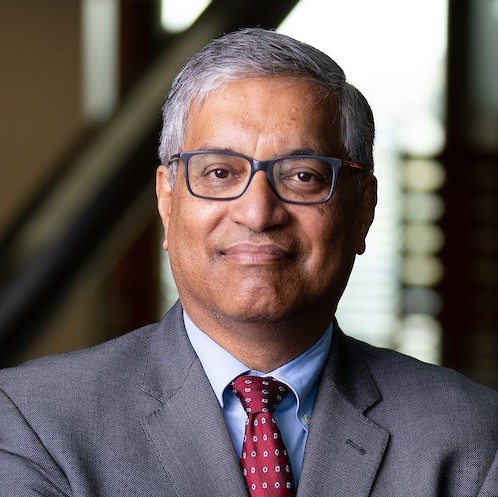
Deepak Khazanchi (2022)
Biography:
Dr. Deepak Khazanchi is Professor of Information Systems and Quantitative Analysis in the College of Information Science & Technology (IS&T) at the University of Nebraska at Omaha (UNO) and Executive Director of the Center for Management of IT (CMIT) research lab. He holds affiliate faculty appointments in UNO’s International Studies program and the Leonard and Shirley Goldstein Center for Human Rights. Deepak also has held adjunct/visiting faculty appointments with CIEM, University of Agder (Norway), Management Center Innsbruck (Austria), University of International Business & Economics (China) and serves on the Board of Management of two Indian universities. He is currently a Fulbright Specialist and has received Fulbright Scholar awards for Austria and Norway. In 2022, Deepak was elected as a Fellow of the International Academy of Information Technology and Quantitative Management.
Dr. Khazanchi has received $10 million in grant funding and donations from private foundations, corporations, federal, and state agencies to support his teaching, research and community engagement activities. His research focuses in the following broad areas: applied ML, perceived fairness of AI/ML systems, fast response virtual teams, mhealth, ITPM, B2B risk in extended enterprise environments, mixed research, and philosophy of computer science. His research has appeared in the International Journal of IT Project Management, The ISACA Journal, Journal of Information Technology Case and Application Research, Communications of the Association of Information Systems, Journal of the Association of Information Systems, Electronic Markets, Decision Support Systems, and Information Systems Management. He received the Ph.D. degree with a specialization in Management Information Systems from Texas Tech University. Prior to this, he earned the MBA degree from Southern Illinois University at Carbondale and an undergraduate degree in Civil Engineering from the Indian Institute of Technology, Kharagpur. He can be reached via e-mail at khazanchi@unomaha.edu, his “web presence” is at https://dkhazanchi.com/ and @khazanchi on twitter.
Dr. Deepak Khazanchi is Professor of Information Systems and Quantitative Analysis in the College of Information Science & Technology (IS&T) at the University of Nebraska at Omaha (UNO) and Executive Director of the Center for Management of IT (CMIT) research lab. He holds affiliate faculty appointments in UNO’s International Studies program and the Leonard and Shirley Goldstein Center for Human Rights. Deepak also has held adjunct/visiting faculty appointments with CIEM, University of Agder (Norway), Management Center Innsbruck (Austria), University of International Business & Economics (China) and serves on the Board of Management of two Indian universities. He is currently a Fulbright Specialist and has received Fulbright Scholar awards for Austria and Norway. In 2022, Deepak was elected as a Fellow of the International Academy of Information Technology and Quantitative Management.
Dr. Khazanchi has received $10 million in grant funding and donations from private foundations, corporations, federal, and state agencies to support his teaching, research and community engagement activities. His research focuses in the following broad areas: applied ML, perceived fairness of AI/ML systems, fast response virtual teams, mhealth, ITPM, B2B risk in extended enterprise environments, mixed research, and philosophy of computer science. His research has appeared in the International Journal of IT Project Management, The ISACA Journal, Journal of Information Technology Case and Application Research, Communications of the Association of Information Systems, Journal of the Association of Information Systems, Electronic Markets, Decision Support Systems, and Information Systems Management. He received the Ph.D. degree with a specialization in Management Information Systems from Texas Tech University. Prior to this, he earned the MBA degree from Southern Illinois University at Carbondale and an undergraduate degree in Civil Engineering from the Indian Institute of Technology, Kharagpur. He can be reached via e-mail at khazanchi@unomaha.edu, his “web presence” is at https://dkhazanchi.com/ and @khazanchi on twitter.
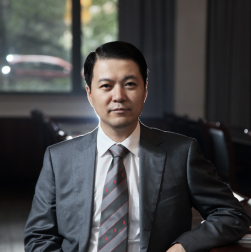
Gang Kou (2022)
Biography:
Dr. Gang Kou is a Distinguished Professor of Chang Jiang Scholars Program in Southwestern University of Finance and Economics, managing editor of International Journal of Information Technology & Decision Making (SCI) and managing editor-in-chief of Financial Innovation (SSCI). He is also editors for other journals, such as: Decision Support Systems, and European Journal of Operational Research. Previously, he was a professor of School of Management and Economics, University of Electronic Science and Technology of China, and a research scientist in Thomson Co., R&D. He received his Ph.D. in Information Technology from the College of Information Science & Technology, Univ. of Nebraska at Omaha; Master degree in Dept of Computer Science, Univ. of Nebraska at Omaha; and B.S. degree in Department of Physics, Tsinghua University, China. He has published more than 100 papers in various peer-reviewed journals. Gang Kou’s h-index is 67 and his papers have been cited for more than 10000 times. He is listed as the Highly Cited Researcher by Clarivate Analytics (Web of Science).
Dr. Gang Kou is a Distinguished Professor of Chang Jiang Scholars Program in Southwestern University of Finance and Economics, managing editor of International Journal of Information Technology & Decision Making (SCI) and managing editor-in-chief of Financial Innovation (SSCI). He is also editors for other journals, such as: Decision Support Systems, and European Journal of Operational Research. Previously, he was a professor of School of Management and Economics, University of Electronic Science and Technology of China, and a research scientist in Thomson Co., R&D. He received his Ph.D. in Information Technology from the College of Information Science & Technology, Univ. of Nebraska at Omaha; Master degree in Dept of Computer Science, Univ. of Nebraska at Omaha; and B.S. degree in Department of Physics, Tsinghua University, China. He has published more than 100 papers in various peer-reviewed journals. Gang Kou’s h-index is 67 and his papers have been cited for more than 10000 times. He is listed as the Highly Cited Researcher by Clarivate Analytics (Web of Science).

Wikil Kwak (2022)
Biography:
Wikil Kwak is a Professor of Accounting at the University of Nebraska at Omaha. He received a Ph.D. in Accounting from the University of Nebraska in Lincoln. Dr. Kwak's research interests include the areas of mathematical programming approaches in bankruptcy prediction, capital budgeting, transfer pricing, performance evaluation, and auditor change prediction studies. In addition, director compensation, Japanese capital market and Say on Pay studies are his current research topics. He has published more than 60 articles and book chapters in the Engineering Economist, Abacus, Contemporary Accounting Research, Review of Quantitative Finance and Accounting, Management Accountant, Journal of Petroleum Accounting and Financial Management, Business Intelligence and Data Mining, Review of Pacific Basin Financial Markets and Policies, and Multinational Business Review.
Wikil Kwak is a Professor of Accounting at the University of Nebraska at Omaha. He received a Ph.D. in Accounting from the University of Nebraska in Lincoln. Dr. Kwak's research interests include the areas of mathematical programming approaches in bankruptcy prediction, capital budgeting, transfer pricing, performance evaluation, and auditor change prediction studies. In addition, director compensation, Japanese capital market and Say on Pay studies are his current research topics. He has published more than 60 articles and book chapters in the Engineering Economist, Abacus, Contemporary Accounting Research, Review of Quantitative Finance and Accounting, Management Accountant, Journal of Petroleum Accounting and Financial Management, Business Intelligence and Data Mining, Review of Pacific Basin Financial Markets and Policies, and Multinational Business Review.

Richard Larson (2022)
Biography:
Dr. Larson received his Ph.D. from MIT where he is Mitsui Professor in MIT's Institute for Data, Systems, and Society (IDSS). He is founding director of MIT LINC http://linc.mit.edu and Principal Investigator of MIT BLOSSOMS http://blossoms.mit.edu. The majority of his career has focused on operations research as applied to services industries. He is author, co-author or editor of seven books and over 100 scientific articles, primarily in the fields of urban service systems, queueing (known as “Dr. Queue”), logistics, disaster management, disease dynamics, dynamic pricing of critical infrastructures, education and workforce planning. His first book, Urban Police Patrol Analysis (MIT Press, 1972) was awarded the Lanchester Prize of the Operations Research Society of America (ORSA). He is co-author, with Amedeo Odoni, of Urban Operations Research, Prentice Hall, 1981 (republished in 2007). He served as President of ORSA, (1993-4), and INFORMS (2005). He has served as consultant to the World Bank, United Nations, Rand Corp., Kuwait Foundation for the Advancement of Science, Hibernia College in Ireland, Hong Kong University, the U.S. Department of Justice, American Airlines and various other corporations. Dr. Larson's research on queues has not only resulted in new computational techniques (e.g., the Queue Inference Engine and the Hypercube Queueing Model), but has also been covered in national media (e.g., ABC TV's 20/20, NPR, CNN.com, the Wall Street Journal and the New York Times). Dr. Larson served as Co-Director of the MIT Operations Research Center (over 15 years in that post). He is a member of the National Academy of Engineering and is an INFORMS Founding Fellow. He has been honored with the INFORMS President’s Award and the Kimball Medal.
Dr. Larson received his Ph.D. from MIT where he is Mitsui Professor in MIT's Institute for Data, Systems, and Society (IDSS). He is founding director of MIT LINC http://linc.mit.edu and Principal Investigator of MIT BLOSSOMS http://blossoms.mit.edu. The majority of his career has focused on operations research as applied to services industries. He is author, co-author or editor of seven books and over 100 scientific articles, primarily in the fields of urban service systems, queueing (known as “Dr. Queue”), logistics, disaster management, disease dynamics, dynamic pricing of critical infrastructures, education and workforce planning. His first book, Urban Police Patrol Analysis (MIT Press, 1972) was awarded the Lanchester Prize of the Operations Research Society of America (ORSA). He is co-author, with Amedeo Odoni, of Urban Operations Research, Prentice Hall, 1981 (republished in 2007). He served as President of ORSA, (1993-4), and INFORMS (2005). He has served as consultant to the World Bank, United Nations, Rand Corp., Kuwait Foundation for the Advancement of Science, Hibernia College in Ireland, Hong Kong University, the U.S. Department of Justice, American Airlines and various other corporations. Dr. Larson's research on queues has not only resulted in new computational techniques (e.g., the Queue Inference Engine and the Hypercube Queueing Model), but has also been covered in national media (e.g., ABC TV's 20/20, NPR, CNN.com, the Wall Street Journal and the New York Times). Dr. Larson served as Co-Director of the MIT Operations Research Center (over 15 years in that post). He is a member of the National Academy of Engineering and is an INFORMS Founding Fellow. He has been honored with the INFORMS President’s Award and the Kimball Medal.
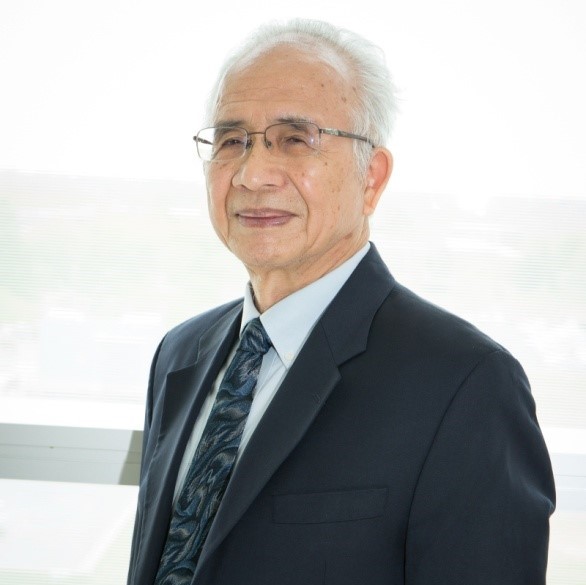
Cheng-Few Lee (2022)
Biography:
Professor Cheng-Few Lee is a Distinguished Professor of Finance at Rutgers Business School, Rutgers University and was chairperson of the Department of Finance from 1988–1995. He has also served on the faculty of the University of Illinois (IBE Professor of Finance) and the University of Georgia. He has maintained strong academic and consulting ties across various regions and countries including Taiwan, Hong Kong, China, and the United States for the past three decades. He has been a consultant to many prominent groups including, the American Insurance Group, the World Bank, the United Nations, The Marmon Group Inc., Wintek Corporation, and Polaris Financial Group.
Professor Lee founded the Review of Quantitative Finance and Accounting (RQFA) in 1990 and the Review of Pacific Basin Financial Markets and Policies (RPBFMP) in 1998, and serves as managing editor for both journals. He was also a co-editor of the Financial Review (1985-1991) and the Quarterly Review of Economics and Finance (1987-1989). In the past 50 years, Dr. Lee has written numerous textbooks ranging in subject matters from financial management to corporate finance, security analysis and portfolio management to financial analysis, planning and forecasting, and business statistics. In addition, he edited two popular books, Encyclopedia of Finance (with Alice C. Lee) and Handbook of Quantitative Finance and Risk Management (with Alice C. Lee and John Lee). Dr. Lee has also published more than 220 articles in more than 20 different journals in finance, accounting, economics, statistics, and management.
Professor Lee was ranked the most published finance professor worldwide during the period 1953-2008. Professor Lee was the intellectual force behind the creation of the new Masters of Quantitative Finance program at Rutgers University. This program began in 2001 and has been ranked as one of the top fifteen quantitative finance programs in the United States. Professor Lee started the Conference on Financial Economics and Accounting. This conference is a consortium of Rutgers University, New York University, Temple University, University of Maryland, Georgia State University, Tulane University, Indiana University, and University of Toronto. This conference is the most well-known conference in finance and accounting.
Professor Cheng-Few Lee is a Distinguished Professor of Finance at Rutgers Business School, Rutgers University and was chairperson of the Department of Finance from 1988–1995. He has also served on the faculty of the University of Illinois (IBE Professor of Finance) and the University of Georgia. He has maintained strong academic and consulting ties across various regions and countries including Taiwan, Hong Kong, China, and the United States for the past three decades. He has been a consultant to many prominent groups including, the American Insurance Group, the World Bank, the United Nations, The Marmon Group Inc., Wintek Corporation, and Polaris Financial Group.
Professor Lee founded the Review of Quantitative Finance and Accounting (RQFA) in 1990 and the Review of Pacific Basin Financial Markets and Policies (RPBFMP) in 1998, and serves as managing editor for both journals. He was also a co-editor of the Financial Review (1985-1991) and the Quarterly Review of Economics and Finance (1987-1989). In the past 50 years, Dr. Lee has written numerous textbooks ranging in subject matters from financial management to corporate finance, security analysis and portfolio management to financial analysis, planning and forecasting, and business statistics. In addition, he edited two popular books, Encyclopedia of Finance (with Alice C. Lee) and Handbook of Quantitative Finance and Risk Management (with Alice C. Lee and John Lee). Dr. Lee has also published more than 220 articles in more than 20 different journals in finance, accounting, economics, statistics, and management.
Professor Lee was ranked the most published finance professor worldwide during the period 1953-2008. Professor Lee was the intellectual force behind the creation of the new Masters of Quantitative Finance program at Rutgers University. This program began in 2001 and has been ranked as one of the top fifteen quantitative finance programs in the United States. Professor Lee started the Conference on Financial Economics and Accounting. This conference is a consortium of Rutgers University, New York University, Temple University, University of Maryland, Georgia State University, Tulane University, Indiana University, and University of Toronto. This conference is the most well-known conference in finance and accounting.

Heeseok Lee (2022)
Biography:
Heeseok Lee is a Professor of IT and Strategy in the College of Business at the Korea Advanced Institute of Science and Technology (KAIST). He earned BA in Industrial Engineering from Seoul National University, MS in Industrial Engineering from KAIST, and Ph.D. in Business Administration from the University of Arizona. Currently, Dr Lee is the Director of Digital Innovation Research Center at KAIST. He was the Dean of the Graduate School of Information & Media Management and the President of the Knowledge Management Society. Dr Lee has led Executive Programs for more than 20 years at KAIST. He is a frequently invited speaker for a talk about strategic implication of IT for leading universities and communities. Before joining KAIST, he taught at the University of Nebraska at Omaha. Dr Lee has published extensively in the areas of IT and Knowledge Management. His research papers have appeared in journals such as International Journal of Information Technology and Decision Making, Annals of Operations Research, European Journal of Operational Research, Information Systems, Journal of Knowledge Management, International Journal of Information Management, Journal of Management Information Systems and Management Information Systems Quarterly, etc. His research on IT impact on team innovation at knowledge-intensive firms was awarded the Best Research at HICSS Conference. He won the National Honorary Award in his efforts for enhancing e-government capabilities. Dr Lee has contributed to IAITQM, especially as a conference chair of ITQM 2016. He was a recipient of Herbert Simon Award and Water Scott Award.
Heeseok Lee is a Professor of IT and Strategy in the College of Business at the Korea Advanced Institute of Science and Technology (KAIST). He earned BA in Industrial Engineering from Seoul National University, MS in Industrial Engineering from KAIST, and Ph.D. in Business Administration from the University of Arizona. Currently, Dr Lee is the Director of Digital Innovation Research Center at KAIST. He was the Dean of the Graduate School of Information & Media Management and the President of the Knowledge Management Society. Dr Lee has led Executive Programs for more than 20 years at KAIST. He is a frequently invited speaker for a talk about strategic implication of IT for leading universities and communities. Before joining KAIST, he taught at the University of Nebraska at Omaha. Dr Lee has published extensively in the areas of IT and Knowledge Management. His research papers have appeared in journals such as International Journal of Information Technology and Decision Making, Annals of Operations Research, European Journal of Operational Research, Information Systems, Journal of Knowledge Management, International Journal of Information Management, Journal of Management Information Systems and Management Information Systems Quarterly, etc. His research on IT impact on team innovation at knowledge-intensive firms was awarded the Best Research at HICSS Conference. He won the National Honorary Award in his efforts for enhancing e-government capabilities. Dr Lee has contributed to IAITQM, especially as a conference chair of ITQM 2016. He was a recipient of Herbert Simon Award and Water Scott Award.

Alexander Lepskiy (2022)
Biography:
Alexander Lepskiy PhD, DSc, Prof. of the Mathematics Department of the Faculty of Economic Sciences, National Research University – Higher School of Economics ( http://www.hse.ru/en/ ), Moscow, Russia; Deputy Head of the International Center of Decision Choice and Analysis ( https://www.hse.ru/en/DeCAn/ ). He received his PhD in Mathematics in 1993 at the Rostov State University (now it is the Southern Federal University). In 2008, he received a Doctor of Science in Physics and Mathematics degree in Theoretical Foundations of Informatics and Mathematical Modeling at the Southern Federal University. He currently teaches courses in mathematics, decision making, and fuzzy mathematics for bachelors and masters of the Higher School of Economics. He is the author of several books and textbooks on data analysis, pattern recognition, image processing, fuzzy mathematics (in Russian). His main research interests are data science, the theory of belief functions, decision making, fuzzy mathematics.
Alexander Lepskiy PhD, DSc, Prof. of the Mathematics Department of the Faculty of Economic Sciences, National Research University – Higher School of Economics ( http://www.hse.ru/en/ ), Moscow, Russia; Deputy Head of the International Center of Decision Choice and Analysis ( https://www.hse.ru/en/DeCAn/ ). He received his PhD in Mathematics in 1993 at the Rostov State University (now it is the Southern Federal University). In 2008, he received a Doctor of Science in Physics and Mathematics degree in Theoretical Foundations of Informatics and Mathematical Modeling at the Southern Federal University. He currently teaches courses in mathematics, decision making, and fuzzy mathematics for bachelors and masters of the Higher School of Economics. He is the author of several books and textbooks on data analysis, pattern recognition, image processing, fuzzy mathematics (in Russian). His main research interests are data science, the theory of belief functions, decision making, fuzzy mathematics.
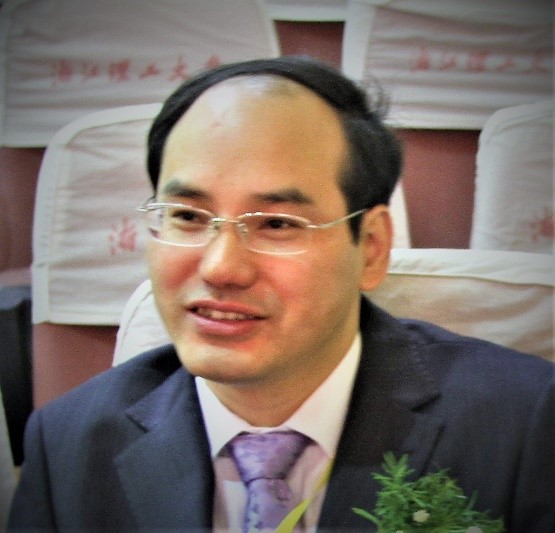
Jianping Li (2022)
Biography:
Dr. Jianping Li is the chair professor and executive vice president in School of Economics and Management, University of Chinese Academy of Sciences. He serves as the secretary-general of the International Academy of Information Technology and Quantitative Management (IAITQM). He holds concurrent positions in seven national societies, including the vice chairman of the Chinese Society of Optimization, Overall Planning and Economical Mathematics. He is the Chief Editor of the General Management Theory Branch of the volume of Management Science and Engineering of Encyclopedia of China (3rd Edition). And serves on the editorial board of nearly 20 academic journals, such as editor-in-chief of Chinese Journal of Management Science and editor-in-chief of Management Review.
He has been awarded "China Youth Science and Technology Award", "National Outstanding Scientist of Science and Technology", and Elsevier China Highly Cited Scholar. He has published more than 130 academic papers, 8 monographs. He has won 2 First-class Prizes and 6 Second-class Prizes of provincial and ministerial Natural Science / Science and Technology Progress Award, and Second-class Prize of education and teaching achievements of the Chinese Academy of Sciences.
Dr. Jianping Li is the chair professor and executive vice president in School of Economics and Management, University of Chinese Academy of Sciences. He serves as the secretary-general of the International Academy of Information Technology and Quantitative Management (IAITQM). He holds concurrent positions in seven national societies, including the vice chairman of the Chinese Society of Optimization, Overall Planning and Economical Mathematics. He is the Chief Editor of the General Management Theory Branch of the volume of Management Science and Engineering of Encyclopedia of China (3rd Edition). And serves on the editorial board of nearly 20 academic journals, such as editor-in-chief of Chinese Journal of Management Science and editor-in-chief of Management Review.
He has been awarded "China Youth Science and Technology Award", "National Outstanding Scientist of Science and Technology", and Elsevier China Highly Cited Scholar. He has published more than 130 academic papers, 8 monographs. He has won 2 First-class Prizes and 6 Second-class Prizes of provincial and ministerial Natural Science / Science and Technology Progress Award, and Second-class Prize of education and teaching achievements of the Chinese Academy of Sciences.

Xiaohui Liu (2022)
Biography:
Xiaohui Liu is Professor of Computing at Brunel University London where he conducts research in artificial intelligence, data science and optimization, with applications in diverse areas including biomedicine and engineering. Xiaohui has held senior visiting positions in Leiden, Harvard and Chinese Academy of Sciences, advised UK Research Councils on data analytics, genomics and security as well as the Royal Statistical Society/the Institute and Faculty of Actuaries on statistical education at UK schools in light of big data. Professor Liu founded the international symposium series on Intelligent Data Analysis in 1995, and since 2014, he has been named as a Highly Cited Researcher for nine consecutive years in Computer Science, Engineering, or Cross-Field (Clarivate/Web of Science).
Xiaohui Liu is Professor of Computing at Brunel University London where he conducts research in artificial intelligence, data science and optimization, with applications in diverse areas including biomedicine and engineering. Xiaohui has held senior visiting positions in Leiden, Harvard and Chinese Academy of Sciences, advised UK Research Councils on data analytics, genomics and security as well as the Royal Statistical Society/the Institute and Faculty of Actuaries on statistical education at UK schools in light of big data. Professor Liu founded the international symposium series on Intelligent Data Analysis in 1995, and since 2014, he has been named as a Highly Cited Researcher for nine consecutive years in Computer Science, Engineering, or Cross-Field (Clarivate/Web of Science).

Irene Ng (2022)
Biography:
Irene Ng is the CEO of Dataswift Ltd, and Professor at WMG, University of Warwick. She is also a Senior Member of Wolfson College, Cambridge and a Turing Fellow (2019-2021).
Irene studied physics, applied physics and computer programming as an undergraduate and became an entrepreneur and practitioner for 16 years before switching to an academic career. During her time in the industry, she occupied a number of senior positions rising to become CEO of SA Tours and Travel group of companies. She pioneered the cruise industry in SE Asia by founding Empress Cruise Lines which she exited after growing it to $3b turnover.
As an academic, Irene’s specialism is in the understanding of value, outcome-based contracts and the economic design and engineering of data markets and ecosystems. She has published in numerous international journals in the domain of engineering, management, marketing, information systems, economics, education and sociology. Irene is the author of 'Creating New Markets in the Digital Economy: Value and Worth’ published by Cambridge University Press, as well as 'The Pricing & Revenue Management of Services: A Strategic Approach', and lead editor of the book Complex Engineering Service Systems: Concepts and Research.
As an entrepreneur, Irene is the CEO of Dataswift (dataswift.io). Irene is the creator of the HAT Microserver ( https://hubofallthings.com ) and the inventor of the Dataswyft self-sovereign data platform. She also runs her own family office investing and incubating startups.
Irene Ng is the CEO of Dataswift Ltd, and Professor at WMG, University of Warwick. She is also a Senior Member of Wolfson College, Cambridge and a Turing Fellow (2019-2021).
Irene studied physics, applied physics and computer programming as an undergraduate and became an entrepreneur and practitioner for 16 years before switching to an academic career. During her time in the industry, she occupied a number of senior positions rising to become CEO of SA Tours and Travel group of companies. She pioneered the cruise industry in SE Asia by founding Empress Cruise Lines which she exited after growing it to $3b turnover.
As an academic, Irene’s specialism is in the understanding of value, outcome-based contracts and the economic design and engineering of data markets and ecosystems. She has published in numerous international journals in the domain of engineering, management, marketing, information systems, economics, education and sociology. Irene is the author of 'Creating New Markets in the Digital Economy: Value and Worth’ published by Cambridge University Press, as well as 'The Pricing & Revenue Management of Services: A Strategic Approach', and lead editor of the book Complex Engineering Service Systems: Concepts and Research.
As an entrepreneur, Irene is the CEO of Dataswift (dataswift.io). Irene is the creator of the HAT Microserver ( https://hubofallthings.com ) and the inventor of the Dataswyft self-sovereign data platform. She also runs her own family office investing and incubating startups.
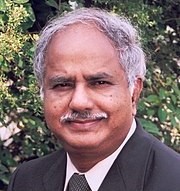
Raj Reddy (2022)
Biography:
Dr. Raj Reddy is a University Professor of Computer Science and Robotics and Moza Bint Nasser Chair in the School of Computer Science at Carnegie Mellon University. From 1960-63, Dr. Reddy worked as an Applied Science Representative for IBM Corp. in Australia. He was an Assistant Professor of Computer Science at Stanford from 1966-69. He joined the Carnegie Mellon faculty as an Associate Professor of Computer Science in 1969. He became a Full Professor in 1973, and a University Professor in 1984. He served as the founding Director of the Robotics Institute from 1979 to 1991 and as the Dean of School of Computer Science from 1991 to 1999.
His professional honors include: Fellow of the Institute of Electrical and Electronics Engineers, Fellow of the Acoustical Society of America, Fellow of the American Association for Artificial Intelligence, Member of the National Academy of Engineering and Member of the American Academy of Arts and Sciences. He is also a member of Chinese Academy of Engineering, Indian National Science Academy, and India National Academy of Engineering. He was president of the American Association for Artificial Intelligence from 1987 to 89. In 1994, he received the Turing Award for his work in the field of artificial intelligence. In 2011, he was inducted into inaugural IEEE Intelligent Systems' AI's Hall of Fame.
Dr. Raj Reddy is a University Professor of Computer Science and Robotics and Moza Bint Nasser Chair in the School of Computer Science at Carnegie Mellon University. From 1960-63, Dr. Reddy worked as an Applied Science Representative for IBM Corp. in Australia. He was an Assistant Professor of Computer Science at Stanford from 1966-69. He joined the Carnegie Mellon faculty as an Associate Professor of Computer Science in 1969. He became a Full Professor in 1973, and a University Professor in 1984. He served as the founding Director of the Robotics Institute from 1979 to 1991 and as the Dean of School of Computer Science from 1991 to 1999.
His professional honors include: Fellow of the Institute of Electrical and Electronics Engineers, Fellow of the Acoustical Society of America, Fellow of the American Association for Artificial Intelligence, Member of the National Academy of Engineering and Member of the American Academy of Arts and Sciences. He is also a member of Chinese Academy of Engineering, Indian National Science Academy, and India National Academy of Engineering. He was president of the American Association for Artificial Intelligence from 1987 to 89. In 1994, he received the Turing Award for his work in the field of artificial intelligence. In 2011, he was inducted into inaugural IEEE Intelligent Systems' AI's Hall of Fame.
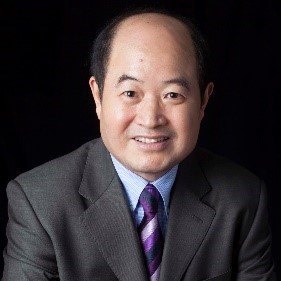
Yong Shi (2022)
Biography:
Yong Shi serves as the Director of Research Center on Fictitious Economy & Data Science (FEDS) and the Director of Key Lab of Big Data Mining and Knowledge Management (BDK), both at Chinese Academy of Sciences. He’s currently a Chair Professor at University of Chinese Academy of Sciences (UCAS) and a Professor of University of Nebraska at Omaha (UNO). He is also the Elected Fellow of the World Academy of Sciences for the Advancement of Science in Developing Countries (TWAS, since 2015), the Counselor of the State Council of P.R.C. (since 2016), the Elected Member of the International Eurasian Academy of Sciences (IEAS, since 2017). His research interests include Business Intelligence and Analytics (BI&A), Big Data Mining and Knowledge Management, Data-driven Decision Making, Digital Economy, Artificial Intelligence, and Multiple Criteria Decision Making (MCDM). He has co-authored over 32 books in related areas with more than 400 papers published in various peer-reviewed journals and conference proceedings. As a major founder of IAITQM, he has served as the President since 2012, and organized a series of conferences since 2013, the International Conference on Information Technology and Quantitative Management (ITQM). He’s also been the Founding Editor and the Editor-in-Chief of two academic journals including International Journal of Information Technology & Decision Making (IJITDM, SCI), Annals of Data Science (AODS, Springer), and a member in the Editorial Board for several journals.
Yong Shi serves as the Director of Research Center on Fictitious Economy & Data Science (FEDS) and the Director of Key Lab of Big Data Mining and Knowledge Management (BDK), both at Chinese Academy of Sciences. He’s currently a Chair Professor at University of Chinese Academy of Sciences (UCAS) and a Professor of University of Nebraska at Omaha (UNO). He is also the Elected Fellow of the World Academy of Sciences for the Advancement of Science in Developing Countries (TWAS, since 2015), the Counselor of the State Council of P.R.C. (since 2016), the Elected Member of the International Eurasian Academy of Sciences (IEAS, since 2017). His research interests include Business Intelligence and Analytics (BI&A), Big Data Mining and Knowledge Management, Data-driven Decision Making, Digital Economy, Artificial Intelligence, and Multiple Criteria Decision Making (MCDM). He has co-authored over 32 books in related areas with more than 400 papers published in various peer-reviewed journals and conference proceedings. As a major founder of IAITQM, he has served as the President since 2012, and organized a series of conferences since 2013, the International Conference on Information Technology and Quantitative Management (ITQM). He’s also been the Founding Editor and the Editor-in-Chief of two academic journals including International Journal of Information Technology & Decision Making (IJITDM, SCI), Annals of Data Science (AODS, Springer), and a member in the Editorial Board for several journals.

Roman Słowiński (2022)
Biography:
Roman Słowiński is a Professor and Founding Chair of the Laboratory of Intelligent Decision Support Systems at Poznań University of Technology, and a Professor in the Systems Research Institute of the Polish Academy of Sciences. As a full member of the Polish Academy of Sciences he has been its Vice-President in 2019-2022. He is also a member of Academia Europaea and Fellow of IEEE, IRSS, INFORMS, IFIP, IFORS, AAIA, and IAITQM. In his research, he combines Operational Research and Artificial Intelligence for Decision Aiding. Recipient of the EURO Gold Medal by the European Association of Operational Research Societies, Officer of Academic Palms of France. Doctor Honoris Causa of Polytechnic Faculty of Mons, University Paris Dauphine, Technical University of Crete, and Hellenic Mediterranean University. Honorary Professor of the Nanjing University of Aeronautics & Astronautics. Laureate of the 2005 Prize of the Foundation for Polish Science, and the Humboldt Research Award 2023 (Germany). Since 1999, he is the co-ordinating editor-in-chief of the European Journal of Operational Research (Elsevier).
Google Scholar: https://scholar.google.com/citations?hl=en&user=yCX-JrQAAAAJ
Personal website: https://fcds.cs.put.poznan.pl/IDSS/rslowinski/cv.htm
Roman Słowiński is a Professor and Founding Chair of the Laboratory of Intelligent Decision Support Systems at Poznań University of Technology, and a Professor in the Systems Research Institute of the Polish Academy of Sciences. As a full member of the Polish Academy of Sciences he has been its Vice-President in 2019-2022. He is also a member of Academia Europaea and Fellow of IEEE, IRSS, INFORMS, IFIP, IFORS, AAIA, and IAITQM. In his research, he combines Operational Research and Artificial Intelligence for Decision Aiding. Recipient of the EURO Gold Medal by the European Association of Operational Research Societies, Officer of Academic Palms of France. Doctor Honoris Causa of Polytechnic Faculty of Mons, University Paris Dauphine, Technical University of Crete, and Hellenic Mediterranean University. Honorary Professor of the Nanjing University of Aeronautics & Astronautics. Laureate of the 2005 Prize of the Foundation for Polish Science, and the Humboldt Research Award 2023 (Germany). Since 1999, he is the co-ordinating editor-in-chief of the European Journal of Operational Research (Elsevier).
Google Scholar: https://scholar.google.com/citations?hl=en&user=yCX-JrQAAAAJ
Personal website: https://fcds.cs.put.poznan.pl/IDSS/rslowinski/cv.htm
Bogdana Stanojevic (2022)
Biography:
Dr Bogdana Stanojevic is senior research associate of the Mathematical Institute of the Serbian Academy of Sciences and Arts, in Belgrade, Serbia. She obtained her doctoral degree in Mathematics in 2003 from the Romanian Academy in Bucharest. She received her B.Sc. in Mathematics and Computer Science in 1995, and M.Sc. in Probabilities and Mathematical Statistics in 1996, both from Transilvania" University of Brasov, Romania. She was an assistant professor, and later on associated professor in the Computer Science Department of Transilvania University of Brasov.
Her current research interests include Multiple Objective Optimization, Fractional Programming, and different aspects of Fuzzy Optimization. Currently, she is member of the editorial teams of International Journal of Computers Communications and Control (IJCCC, Romania) and Yugoslav Journal of Operations Research (YUJOR, Serbia).
She was co-organizer of the special sessions "Soft Computing Methods in Quantitative Management and Decision Making" at ITQM 2020-2021, and "Soft Computing and Optimization for Decision-Making" at ITQM 2022, in China; and invited speaker for the tutorial lecture "Multi-criteria optimization: applications and some limits of its achievements" at ITQM 2016, Korea.
She has published more than fifty research papers in leading international journals and conference proceedings; and several handbooks (in Romanian).
Dr Bogdana Stanojevic is senior research associate of the Mathematical Institute of the Serbian Academy of Sciences and Arts, in Belgrade, Serbia. She obtained her doctoral degree in Mathematics in 2003 from the Romanian Academy in Bucharest. She received her B.Sc. in Mathematics and Computer Science in 1995, and M.Sc. in Probabilities and Mathematical Statistics in 1996, both from Transilvania" University of Brasov, Romania. She was an assistant professor, and later on associated professor in the Computer Science Department of Transilvania University of Brasov.
Her current research interests include Multiple Objective Optimization, Fractional Programming, and different aspects of Fuzzy Optimization. Currently, she is member of the editorial teams of International Journal of Computers Communications and Control (IJCCC, Romania) and Yugoslav Journal of Operations Research (YUJOR, Serbia).
She was co-organizer of the special sessions "Soft Computing Methods in Quantitative Management and Decision Making" at ITQM 2020-2021, and "Soft Computing and Optimization for Decision-Making" at ITQM 2022, in China; and invited speaker for the tutorial lecture "Multi-criteria optimization: applications and some limits of its achievements" at ITQM 2016, Korea.
She has published more than fifty research papers in leading international journals and conference proceedings; and several handbooks (in Romanian).
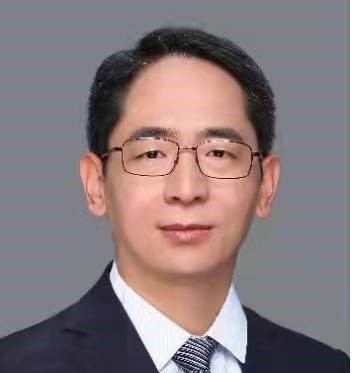
Yingjie Tian (2022)
Biography:
Yingjie Tian, serves as the Vice Dean of School of Economics and Management, University of Chinese Academy of Sciences, and the Deputy Director of the Research Center on Fictitious Economy & Data Science, Chinese Academy of Sciences. He has been engaged in data science for over 20 years, and has made important contributions to the scientific fields such as big data mining, machine learning, and intelligent knowledge management. He has published more than 100 papers in various peer-reviewed journals and conferences, and his papers have been cited about 10000 times. He’s now the Managing Editor of Annals of Data Science (AODS, Springer), and the Associate Editor of Neurocomputing, also a member in the Editorial Board for several journals.
Yingjie Tian, serves as the Vice Dean of School of Economics and Management, University of Chinese Academy of Sciences, and the Deputy Director of the Research Center on Fictitious Economy & Data Science, Chinese Academy of Sciences. He has been engaged in data science for over 20 years, and has made important contributions to the scientific fields such as big data mining, machine learning, and intelligent knowledge management. He has published more than 100 papers in various peer-reviewed journals and conferences, and his papers have been cited about 10000 times. He’s now the Managing Editor of Annals of Data Science (AODS, Springer), and the Associate Editor of Neurocomputing, also a member in the Editorial Board for several journals.
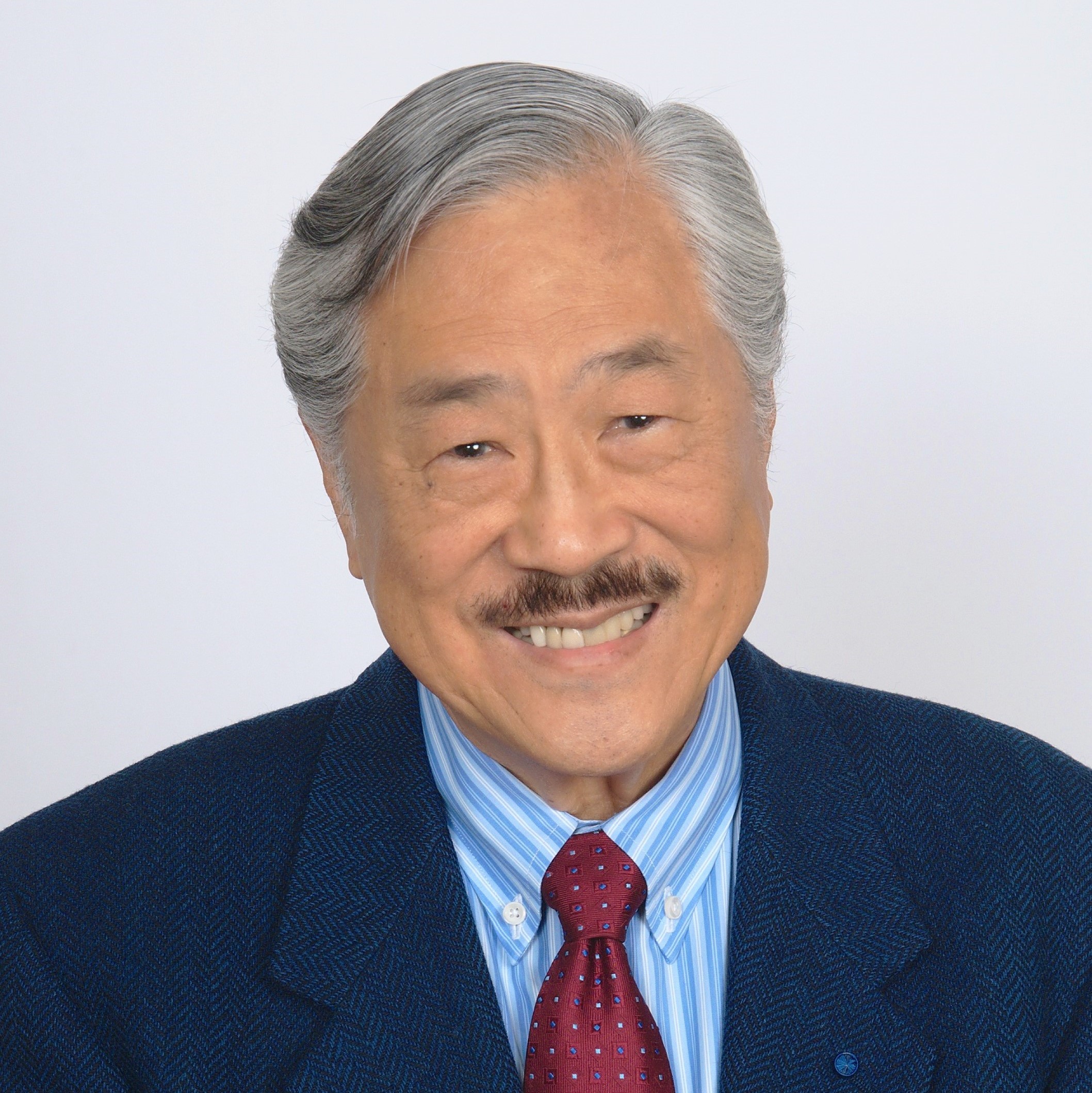
JAMES M. TIEN (2022)
Biography:
Dr. Tien, an electrical and operational systems engineer, is currently a Distinguished Professor and Dean Emeritus of the College of Engineering at the University of Miami. He grew up in Jilin, China, and Sao Paulo, Brazil. In 1977, Dr. Tien joined the faculty of the Department of Electrical, Computer, and Systems Engineering at Rensselaer Polytechnic University, where he twice served as Acting Dean of Engineering. In 2007, he joined the University of Miami’s College of Engineering as its Dean. Concurrent with his over 45 years as a professor and administrator, Dr. Tien has maintained a wide-ranging industrial career, including being a member of technical staff at Bell Telephone Laboratories, a project director at the Rand Corporation, an area director at Urban Systems Research and Engineering, and – from 1975 to 2015 – a principal, vice president and treasurer at four different research consulting companies, in partnership with several academic colleagues and post-doctoral students. Dr. Tien is an internationally renowned scholar who has made significant contributions to the development and application of information and decision systems concepts and methodologies to improve public services and engineering education. He served on the Institute of Electrical and Electronics Engineers’ (IEEE) Board of Directors from 2001 to 2004, and he was Vice President of both its Publication Services and Products Board and its Educational Activities Board. He has received several awards, including the 2010 IEEE Richard M. Emberson Award “for vision and leadership in advancing IEEE’s global visibility and recognition as an innovator in technical, publication, and educational services.” In addition to being elected Fellow of several organizations, he is also a member of the U. S. National Academy of Engineering since 2001. Dr. Tien earned his BS in electrical engineering from Rensselaer Polytechnic University and his PhD in systems engineering and operations research from the Massachusetts Institute of Technology.
Dr. Tien, an electrical and operational systems engineer, is currently a Distinguished Professor and Dean Emeritus of the College of Engineering at the University of Miami. He grew up in Jilin, China, and Sao Paulo, Brazil. In 1977, Dr. Tien joined the faculty of the Department of Electrical, Computer, and Systems Engineering at Rensselaer Polytechnic University, where he twice served as Acting Dean of Engineering. In 2007, he joined the University of Miami’s College of Engineering as its Dean. Concurrent with his over 45 years as a professor and administrator, Dr. Tien has maintained a wide-ranging industrial career, including being a member of technical staff at Bell Telephone Laboratories, a project director at the Rand Corporation, an area director at Urban Systems Research and Engineering, and – from 1975 to 2015 – a principal, vice president and treasurer at four different research consulting companies, in partnership with several academic colleagues and post-doctoral students. Dr. Tien is an internationally renowned scholar who has made significant contributions to the development and application of information and decision systems concepts and methodologies to improve public services and engineering education. He served on the Institute of Electrical and Electronics Engineers’ (IEEE) Board of Directors from 2001 to 2004, and he was Vice President of both its Publication Services and Products Board and its Educational Activities Board. He has received several awards, including the 2010 IEEE Richard M. Emberson Award “for vision and leadership in advancing IEEE’s global visibility and recognition as an innovator in technical, publication, and educational services.” In addition to being elected Fellow of several organizations, he is also a member of the U. S. National Academy of Engineering since 2001. Dr. Tien earned his BS in electrical engineering from Rensselaer Polytechnic University and his PhD in systems engineering and operations research from the Massachusetts Institute of Technology.

Enrique Herrera-Viedma (2022)
Biography:
Prof. Enrique Herrera-Viedma is Full Professor in Computer Science and AI at University of Granada (UGR) from 2007. Now, he is Vice-President for Research and Knowledge Transfer at the UGR from June 2015. He has been Vice-President for Publications in the IEEE System, Man and Cybernetic Society (2019-2020) and currently, he is the new VP for Cybernetics. Prof. Herrera-Viedma is also a IEEE Fellow, IFSA Fellow, ITQM Fellow and member of Europaea Academy. He is also a member of the prestigious Spanish Think Tank “Royal Institute Elcano” supported by the large Spanish enterprises and the Spain Government.
Prof. Herrera-Viedma has been, for 25 years, an internationally recognized contributor to R&D programs in foundations and applications of fuzzy tools and fuzzy intelligent decision making systems. He has worked in many different areas including decision making, preference modelling, computing with words, consensus, information retrieval, digital libraries, recommender systems, social networks, bibliometrics, blockchain and their applications to real-world problems. He has published more than 560 peer-reviewed scientific publications, including 350 papers in JCR journals (More than 200 in Q1, more than 50 in D1). In 2013 he published in the famous journal Science on role of digital libraries. He has been identified as Highly Cited Researcher in Computer Science by Clarivate Analytics. According to WoS his h-index is 85 (more than 23000 citations) and his h-index is 101 in GS (more than 41000 citations).
Prof. Herrera-Viedma received the UGR Young Researcher Career Award in 2006, the 2011 IEEE Transactions on Fuzzy Systems Outstanding Paper Award from the IEEE CIS, the 2016 Andrew P. Sage Best Transactions Paper Award, which recognizes authors of the best paper among all papers published in the IEEE Transactions on SMCS, and the 2014-Best Paper HERBERT SIMON AWARD of journal I.J. of Information Technology and Decision Making.
Prof. Enrique Herrera-Viedma is Full Professor in Computer Science and AI at University of Granada (UGR) from 2007. Now, he is Vice-President for Research and Knowledge Transfer at the UGR from June 2015. He has been Vice-President for Publications in the IEEE System, Man and Cybernetic Society (2019-2020) and currently, he is the new VP for Cybernetics. Prof. Herrera-Viedma is also a IEEE Fellow, IFSA Fellow, ITQM Fellow and member of Europaea Academy. He is also a member of the prestigious Spanish Think Tank “Royal Institute Elcano” supported by the large Spanish enterprises and the Spain Government.
Prof. Herrera-Viedma has been, for 25 years, an internationally recognized contributor to R&D programs in foundations and applications of fuzzy tools and fuzzy intelligent decision making systems. He has worked in many different areas including decision making, preference modelling, computing with words, consensus, information retrieval, digital libraries, recommender systems, social networks, bibliometrics, blockchain and their applications to real-world problems. He has published more than 560 peer-reviewed scientific publications, including 350 papers in JCR journals (More than 200 in Q1, more than 50 in D1). In 2013 he published in the famous journal Science on role of digital libraries. He has been identified as Highly Cited Researcher in Computer Science by Clarivate Analytics. According to WoS his h-index is 85 (more than 23000 citations) and his h-index is 101 in GS (more than 41000 citations).
Prof. Herrera-Viedma received the UGR Young Researcher Career Award in 2006, the 2011 IEEE Transactions on Fuzzy Systems Outstanding Paper Award from the IEEE CIS, the 2016 Andrew P. Sage Best Transactions Paper Award, which recognizes authors of the best paper among all papers published in the IEEE Transactions on SMCS, and the 2014-Best Paper HERBERT SIMON AWARD of journal I.J. of Information Technology and Decision Making.

Wang Peizhuang (2022)
Biography:
Wang Peizhuang graduated from the Department of Mathematics of Beijing Normal University in 1957. He was a professor of Beijing Normal University from 1983 to 1997. He is now the Dean of the Institute of Intelligent Engineering and Mathematics of Liaoning Technical University. He is engaged in the research of applied mathematics and artificial intelligence. He is the leading academic leader of fuzzy set and system theory in early China. He proposed the mathematical theories of factor (information) space, fuzzy fall shadow and truth flow inference. His books and papers have been cited more than 8,000 times.
Wang Peizhuang graduated from the Department of Mathematics of Beijing Normal University in 1957. He was a professor of Beijing Normal University from 1983 to 1997. He is now the Dean of the Institute of Intelligent Engineering and Mathematics of Liaoning Technical University. He is engaged in the research of applied mathematics and artificial intelligence. He is the leading academic leader of fuzzy set and system theory in early China. He proposed the mathematical theories of factor (information) space, fuzzy fall shadow and truth flow inference. His books and papers have been cited more than 8,000 times.
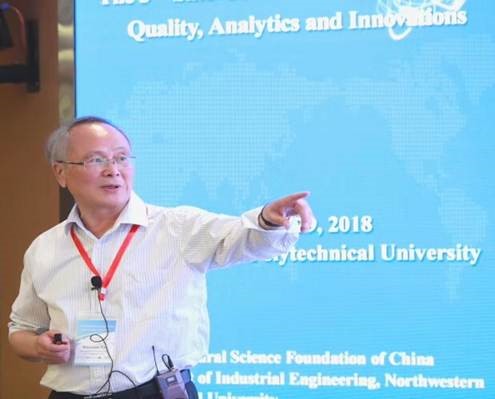
Weixuan Xu (2022)
Biography:
Weixuan Xu is one of the earliest domestic scholars to conduct academic communication with the international industrial engineering community and made important contributions to promoting the communication between China’s industrial engineering circles and international counterparts with his influence among international peers. He graduated from the Department of Mathematics, Sun Yat-Sen University in 1964, and studied for postgraduate under the tutelage of Professor Loo-Keng Hua in the Department of Mathematics, the University of Science and Technology of China from 1964 to 1968. He received a doctorate degree in OR/MS from the University of Maryland in 1984. He used to be the director of the Institute of Science and Technology Policy and Management Science of the Chinese Academy of Sciences, the chairman of the Chinese Society of Optimization, Overall Planning and Economic Mathematics, and also a senior judge of the Management Science Department of the National Natural Science Foundation of China. As the main participant, he was awarded the first prize (1988) and the second prize (1992) of the National Science and Technology Progress Award respectively, as well as a number of provincial and ministerial science and technology progress awards. In 1994, he was awarded the National Young and Middle-aged Expert with Outstanding Contributions.
Weixuan Xu is one of the earliest domestic scholars to conduct academic communication with the international industrial engineering community and made important contributions to promoting the communication between China’s industrial engineering circles and international counterparts with his influence among international peers. He graduated from the Department of Mathematics, Sun Yat-Sen University in 1964, and studied for postgraduate under the tutelage of Professor Loo-Keng Hua in the Department of Mathematics, the University of Science and Technology of China from 1964 to 1968. He received a doctorate degree in OR/MS from the University of Maryland in 1984. He used to be the director of the Institute of Science and Technology Policy and Management Science of the Chinese Academy of Sciences, the chairman of the Chinese Society of Optimization, Overall Planning and Economic Mathematics, and also a senior judge of the Management Science Department of the National Natural Science Foundation of China. As the main participant, he was awarded the first prize (1988) and the second prize (1992) of the National Science and Technology Progress Award respectively, as well as a number of provincial and ministerial science and technology progress awards. In 1994, he was awarded the National Young and Middle-aged Expert with Outstanding Contributions.
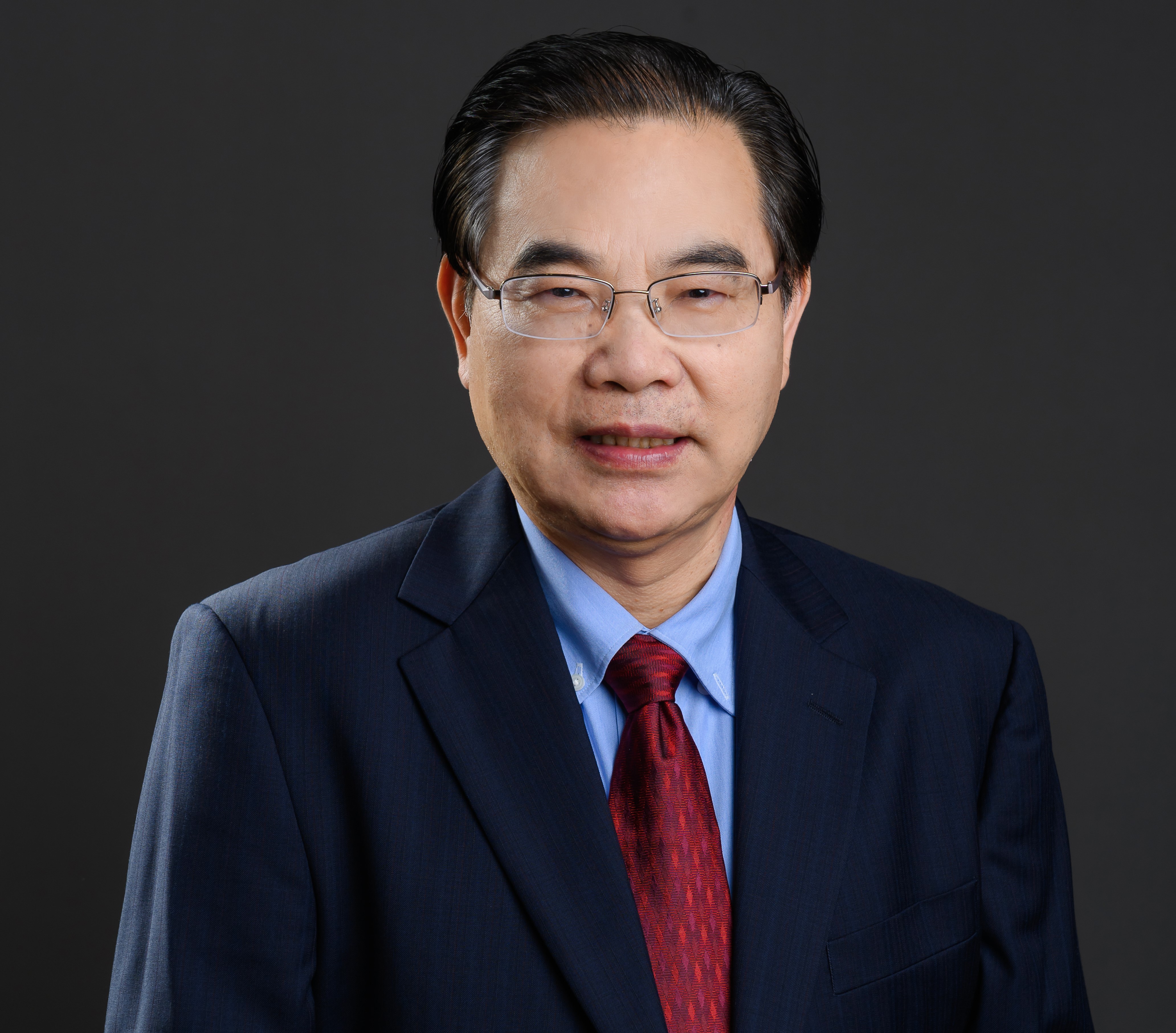
Zongben Xu (2022)
Biography:
Zongben Xu was born in 1955. He received his Ph.D. degrees in mathematics from Xi'an Jiaotong University, China, in 1987. His current research interests include applied mathematics and mathematical methods of big data and artificial intelligence. He established the L(1/2) regularization theory for sparse information processing. He also found and verified Xu-Roach Theorem in machine learning, and established the visual cognition based data modelling principle, which have been widely applied in scientific and engineering fields. he initiated several mathematical theories, including the non-logarithmic transform based CT model, and ultrafast MRI imaging, which provide principles and technologies for the development of a new generation of intelligent medical imaging equipment. He is owner of the Hua Loo-keng Prize of Mathematics in 2022, Tan Kan Kee Science Award in Science Technology in 2018, the National Natural Science Award of China in 2007, and winner of CSIAM Su Buchin Applied Mathematics Prize in 2008. He delivered a 45-minute talk on the International Congress of Mathematicians 2010. He was elected as member of Chinese Academy of Science in 2011.
Zongben Xu was the vice-president of Xi'an Jiaotong University. He currently makes several important services for government and professional societies, including the director for Pazhou Lab (Huangpu), director for the National Engineering Laboratory for Big Data Analytics, a member of National Big Data Expert Advisory Committee and the Strategic Advisory Committee member of National Open Innovation Platform for New Generation of Artificial Intelligence.
Zongben Xu was born in 1955. He received his Ph.D. degrees in mathematics from Xi'an Jiaotong University, China, in 1987. His current research interests include applied mathematics and mathematical methods of big data and artificial intelligence. He established the L(1/2) regularization theory for sparse information processing. He also found and verified Xu-Roach Theorem in machine learning, and established the visual cognition based data modelling principle, which have been widely applied in scientific and engineering fields. he initiated several mathematical theories, including the non-logarithmic transform based CT model, and ultrafast MRI imaging, which provide principles and technologies for the development of a new generation of intelligent medical imaging equipment. He is owner of the Hua Loo-keng Prize of Mathematics in 2022, Tan Kan Kee Science Award in Science Technology in 2018, the National Natural Science Award of China in 2007, and winner of CSIAM Su Buchin Applied Mathematics Prize in 2008. He delivered a 45-minute talk on the International Congress of Mathematicians 2010. He was elected as member of Chinese Academy of Science in 2011.
Zongben Xu was the vice-president of Xi'an Jiaotong University. He currently makes several important services for government and professional societies, including the director for Pazhou Lab (Huangpu), director for the National Engineering Laboratory for Big Data Analytics, a member of National Big Data Expert Advisory Committee and the Strategic Advisory Committee member of National Open Innovation Platform for New Generation of Artificial Intelligence.
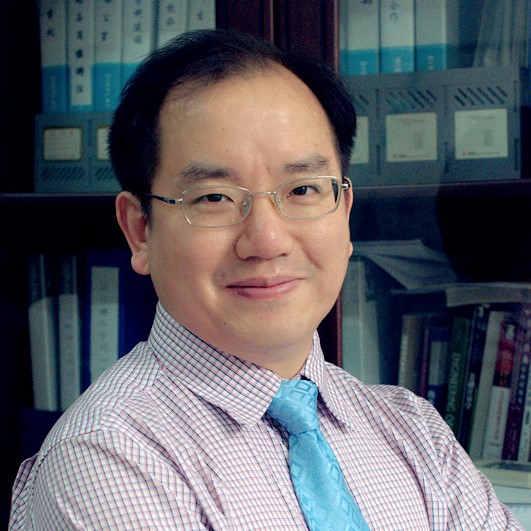
Lean Yu (2022)
Biography:
Professor Lean Yu received his Ph.D. degree in Management Science and Engineering from Academy of Mathematics and Systems Science, Chinese Academy of Sciences (CAS). He is a Distinguished Professor of Business School, Sichuan University. Meantime, he is an Academician of International Academy for Systems and Cybernetic Sciences (IASCYS, France), a Fellow of International Academy of Information Technology and Quantitative Management (IAITQM, USA), and a Fellow of Asia-Pacific Artificial Intelligence Association (AAIA, Hong Kong). He was a winner of National Science Fund for Distinguished Young Scholars and “Hundred Talents Program” of Chinese Academy of Sciences. He was served as section editors, associate editors and editorial members of several international journals, such as Annals of Data Science, Financial Innovation, and Journal of Universal Computer Science. So far, he has published five monographs (two monographs have been published by Springer-Verlag) and over 100 SCI/SSCI articles in some top journals including IEEE Transactions on Evolutionary Computation and IEEE Transactions on Knowledge and Data Engineering. At the same time, he received many awards and honors, such as China Youth Science and Technology Award, “The 100 National Best PhD Theses Award” from Academic Degrees Committee of State Council and Ministry of Education of China, “First Class Prize for Beijing Science and Technology Award” from the Beijing Municipal Government, First Class Prize in Natural Science Award of the Ministry of Education, “First Class Prize for Applications of Operations Research in China” awarded by the Operations Research Society of China (ORSC), and “Lu Jia-xi Young Talent Award” of Chinese Academy of Sciences. His research interests include business intelligence, big data mining, forecasting science, FinTech, and energy management.
Professor Lean Yu received his Ph.D. degree in Management Science and Engineering from Academy of Mathematics and Systems Science, Chinese Academy of Sciences (CAS). He is a Distinguished Professor of Business School, Sichuan University. Meantime, he is an Academician of International Academy for Systems and Cybernetic Sciences (IASCYS, France), a Fellow of International Academy of Information Technology and Quantitative Management (IAITQM, USA), and a Fellow of Asia-Pacific Artificial Intelligence Association (AAIA, Hong Kong). He was a winner of National Science Fund for Distinguished Young Scholars and “Hundred Talents Program” of Chinese Academy of Sciences. He was served as section editors, associate editors and editorial members of several international journals, such as Annals of Data Science, Financial Innovation, and Journal of Universal Computer Science. So far, he has published five monographs (two monographs have been published by Springer-Verlag) and over 100 SCI/SSCI articles in some top journals including IEEE Transactions on Evolutionary Computation and IEEE Transactions on Knowledge and Data Engineering. At the same time, he received many awards and honors, such as China Youth Science and Technology Award, “The 100 National Best PhD Theses Award” from Academic Degrees Committee of State Council and Ministry of Education of China, “First Class Prize for Beijing Science and Technology Award” from the Beijing Municipal Government, First Class Prize in Natural Science Award of the Ministry of Education, “First Class Prize for Applications of Operations Research in China” awarded by the Operations Research Society of China (ORSC), and “Lu Jia-xi Young Talent Award” of Chinese Academy of Sciences. His research interests include business intelligence, big data mining, forecasting science, FinTech, and energy management.
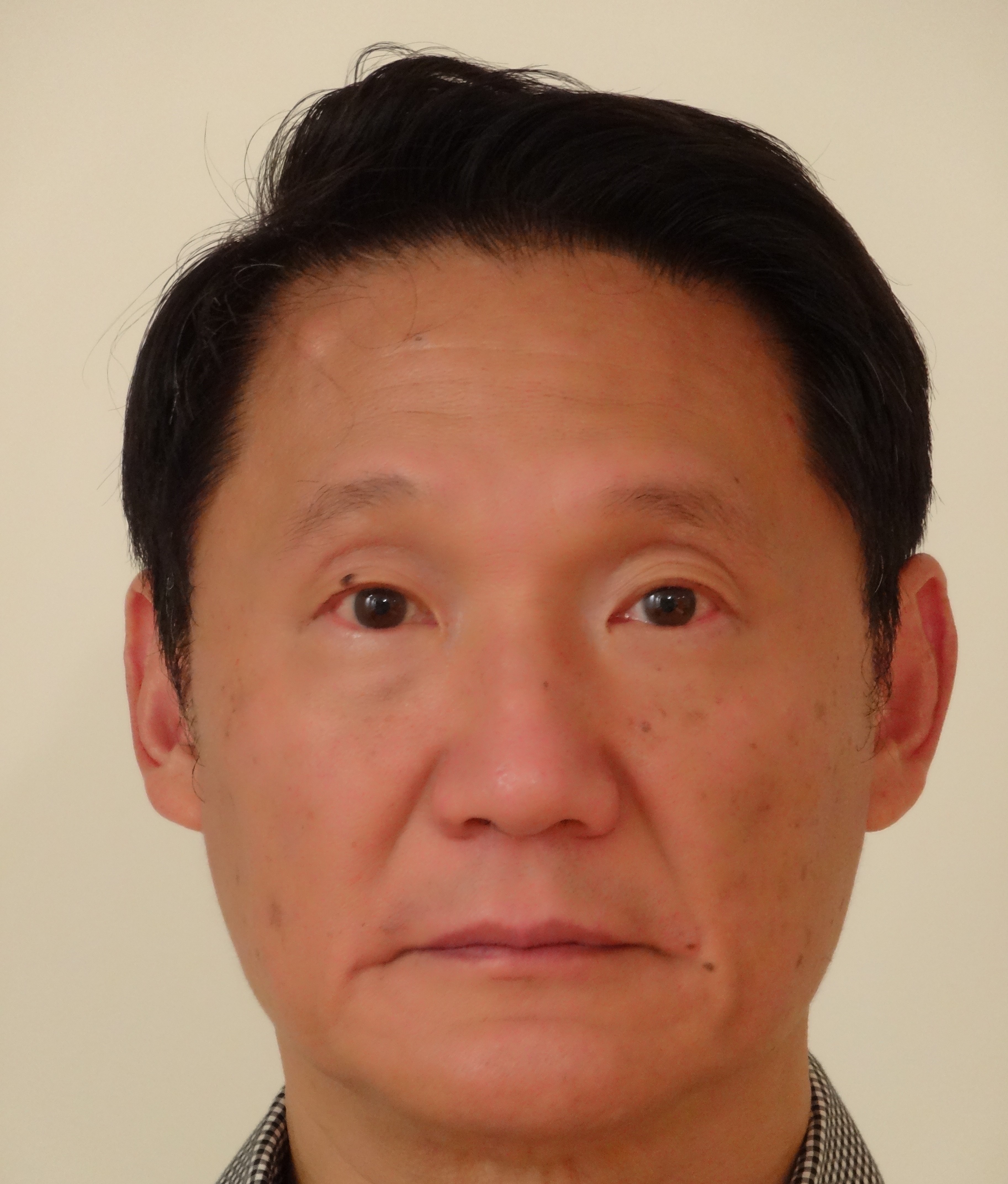
Philip Yu (2022)
Biography:
Philip Yu is a Distinguished Professor in Computer Science at the University of Illinois Chicago and holds the Wexler Chair in Information Technology. He is the recipient of ACM SIGKDD 2016 Innovation Award for influential research contributions on mining, fusion and anonymization of big data, and IEEE Computer Society’s 2013 Technical Achievement Award for “pioneering and fundamentally innovative contributions to the scalable indexing, querying, searching, mining and anonymization of big data”. He was Editor-in-Chiefs of ACM Transactions on Knowledge Discovery from Data (2011-2017) and IEEE Transactions on Knowledge and Data Engineering (2001-2004). He is a fellow of ACM and IEEE.
Philip Yu is a Distinguished Professor in Computer Science at the University of Illinois Chicago and holds the Wexler Chair in Information Technology. He is the recipient of ACM SIGKDD 2016 Innovation Award for influential research contributions on mining, fusion and anonymization of big data, and IEEE Computer Society’s 2013 Technical Achievement Award for “pioneering and fundamentally innovative contributions to the scalable indexing, querying, searching, mining and anonymization of big data”. He was Editor-in-Chiefs of ACM Transactions on Knowledge Discovery from Data (2011-2017) and IEEE Transactions on Knowledge and Data Engineering (2001-2004). He is a fellow of ACM and IEEE.
Po-Lung Yu (2022)
Biography:
P. L. Yu, Emeritus Distinguished Professor of both the University of Kansas and the National Chiao-Tung University. He earned BA—International Trade (1963) from National Taiwan University, and Ph.D.—Operations Research and Industrial Engineering (1969) from the Johns Hopkins University.
From 1977 to 2004, Dr. Yu held an endowed Chair as the Carl A. Scupin Distinguished Professor of the University of Kansas. Previously he taught at the University of Rochester (1969-73) and the University of Texas at Austin (1973-77). He won awards for research and for teaching, including the Edgeworth-Pareto Award by the International Society on Multiple Criteria Decision Making (1992).
Over the last thee decades, Dr. Yu’s research interests and activities have evolved and expanded greatly, from the very beginning of sophisticated mathematical analysis in differential games with Dr. Rufus Isaacs (the inventor) to currently more humane and philosophic views of human behavior, innovation and strategic decision making. He began to actively study human psychology and neuron science in 1976 to explore the “root” of human decision mechanism. Utilizing the findings of psychology, brain physiology, dynamic optimization systems, both Eastern and Western thoughts, and empirical observations, he built a basic model of human behavior mechanism, habitual domain theory and competence set analysis.
Dr. Yu has published 17 books and more than 180 professional articles which are roughly classified into seven areas: (A) multiple criteria decision making, (B) behavior mechanism and habitual domains, (C) competence set analysis and innovation dynamics, (D) group decision making and gaming, (E) second order games, (F) differential games and optimal control theory, and (G) applications which range from investment models, efficient market, marketing, automobile safety and energy policy (results were quoted in national magazines including Newsweek), corporate strategic planning, corporate acquisition and merger analysis, etc.
Dr. Yu is recognized internationally as a remarkable thinker, scholar, teacher and advisor. He has given many keynote addresses around the world, academically and publicly. His audiences of habitual domains and related topics, sometimes exceeding thousands of people, include professors, students, corporate executives, ministers, military generals, monks, nuns, house wives, jail prisoners, etc….
P. L. Yu, Emeritus Distinguished Professor of both the University of Kansas and the National Chiao-Tung University. He earned BA—International Trade (1963) from National Taiwan University, and Ph.D.—Operations Research and Industrial Engineering (1969) from the Johns Hopkins University.
From 1977 to 2004, Dr. Yu held an endowed Chair as the Carl A. Scupin Distinguished Professor of the University of Kansas. Previously he taught at the University of Rochester (1969-73) and the University of Texas at Austin (1973-77). He won awards for research and for teaching, including the Edgeworth-Pareto Award by the International Society on Multiple Criteria Decision Making (1992).
Over the last thee decades, Dr. Yu’s research interests and activities have evolved and expanded greatly, from the very beginning of sophisticated mathematical analysis in differential games with Dr. Rufus Isaacs (the inventor) to currently more humane and philosophic views of human behavior, innovation and strategic decision making. He began to actively study human psychology and neuron science in 1976 to explore the “root” of human decision mechanism. Utilizing the findings of psychology, brain physiology, dynamic optimization systems, both Eastern and Western thoughts, and empirical observations, he built a basic model of human behavior mechanism, habitual domain theory and competence set analysis.
Dr. Yu has published 17 books and more than 180 professional articles which are roughly classified into seven areas: (A) multiple criteria decision making, (B) behavior mechanism and habitual domains, (C) competence set analysis and innovation dynamics, (D) group decision making and gaming, (E) second order games, (F) differential games and optimal control theory, and (G) applications which range from investment models, efficient market, marketing, automobile safety and energy policy (results were quoted in national magazines including Newsweek), corporate strategic planning, corporate acquisition and merger analysis, etc.
Dr. Yu is recognized internationally as a remarkable thinker, scholar, teacher and advisor. He has given many keynote addresses around the world, academically and publicly. His audiences of habitual domains and related topics, sometimes exceeding thousands of people, include professors, students, corporate executives, ministers, military generals, monks, nuns, house wives, jail prisoners, etc….

Milan Zeleny (2022)
Biography:
Milan Zeleny is Professor (Emer.) of Management Systems at Fordham University. His previous appointments were at Columbia University, University of South Carolina, Copenhagen School of Economics, European Institute for Advanced Studies, and University of Rochester. Major visiting appointments include Beijing, Xi′an, Tianjin, Taipei, Shanghai, Christchurch, Pretoria, Tokyo, Naples, Padua, Rome, Milan, Rio de Janeiro, Perth, Kanpur, Melbourne, Zlín, Turku, Helsinki, etc. He has become a global actor through his ZET – Foundation. Zeleny’s scientific interests have always been always multi- and trans-disciplinary. His most significant contributions are in the areas of multiple criteria decision making (MCDM), autopoiesis, fuzzy sets, artificial life, synthetic biology, multiobjective programming, games with multiple payoffs, De novo programming, conflict dissolution, Bata management system, tradeoffs-free economics, evolutionary economics, strategy as action, economic transformation and metamorphosis, etc. Naturally, his publications, although well above six hundred, are not rooted in traditional specialization, but in an ever-expanding array of interactions of mutually synergetic and merging areas of interest.
Milan Zeleny is Professor (Emer.) of Management Systems at Fordham University. His previous appointments were at Columbia University, University of South Carolina, Copenhagen School of Economics, European Institute for Advanced Studies, and University of Rochester. Major visiting appointments include Beijing, Xi′an, Tianjin, Taipei, Shanghai, Christchurch, Pretoria, Tokyo, Naples, Padua, Rome, Milan, Rio de Janeiro, Perth, Kanpur, Melbourne, Zlín, Turku, Helsinki, etc. He has become a global actor through his ZET – Foundation. Zeleny’s scientific interests have always been always multi- and trans-disciplinary. His most significant contributions are in the areas of multiple criteria decision making (MCDM), autopoiesis, fuzzy sets, artificial life, synthetic biology, multiobjective programming, games with multiple payoffs, De novo programming, conflict dissolution, Bata management system, tradeoffs-free economics, evolutionary economics, strategy as action, economic transformation and metamorphosis, etc. Naturally, his publications, although well above six hundred, are not rooted in traditional specialization, but in an ever-expanding array of interactions of mutually synergetic and merging areas of interest.

Yong Zeng (2022)
Biography:
Yong Zeng, born in October 1963, graduated from Tsinghua University in China (B.S. in Automation, Master in System Engineering and PhD in Management Science and Engineering), full professor and President of the University of Electronic Science and Technology of China (UESTC). He has long been engaged in research in the fields of management science and financial engineering, and devoted himself to management education and engineering education. He has published 8 academic monographs and 100+ papers in academic journals and has won about 20 academic awards for outstanding research. He was selected as an academician of IEAS and the China leading talent programs, and is serving as Vice Director or Board Member of several academic organizations.
Yong Zeng, born in October 1963, graduated from Tsinghua University in China (B.S. in Automation, Master in System Engineering and PhD in Management Science and Engineering), full professor and President of the University of Electronic Science and Technology of China (UESTC). He has long been engaged in research in the fields of management science and financial engineering, and devoted himself to management education and engineering education. He has published 8 academic monographs and 100+ papers in academic journals and has won about 20 academic awards for outstanding research. He was selected as an academician of IEAS and the China leading talent programs, and is serving as Vice Director or Board Member of several academic organizations.
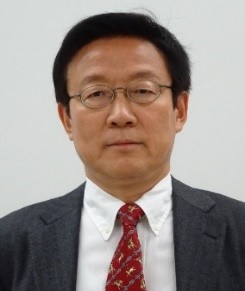
Ning Zhong (2022)
Biography:
Dr. Ning Zhong obtained his Ph.D. from the University of Tokyo. He currently holds positions as the Co-director & Co-chairman of the Web Intelligence Consortium (WIC, wi-consortium.org), CEO & Chief Scientist of the Web Intelligence Lab, Professor Emeritus/Visiting Professor, and previously served as a professor in the Department of Life Science and Informatics at Maebashi Institute of Technology, Japan. Dr. Zhong is a foreign fellow of the Engineering Academy of Japan (EAJ).
Dr. Zhong's research interests focus on Web Intelligence (WI), Brain Informatics (BI), Machine Learning, Data Mining, Intelligent Health Technologies, and Intelligent Systems. In 2000 and 2004, Dr. Zhong and his colleagues introduced WI and BI as new research directions, respectively. By conducting interdisciplinary research and driving industrial innovation in the fusion of web intelligence and brain informatics, Dr. Zhong has pioneered the frontier research domain of brain-machine intelligence based on brain big data. Together with the WIC industrial innovation team, Dr. Zhong is developing AI technologies to create a future intelligent society and facilitate the transition from brain-machine intelligence research to a new AI industry chain in the connected world. The goal is to establish an integrated technological support and service system for the prevention and management of major brain and mental health diseases (such as dementia, depression, etc.), develop brain-machine intelligence and brain health products, promote the intelligent health service industry, and contribute to achieving human-machine symbiosis, collaborative evolution, and interconnected coexistence, fostering a data-driven innovative service-oriented society.
Dr. Zhong serves as the founding editor-in-chief of the Web Intelligence journal (IOS Press), the editor-in-chief of the Brain Informatics journal (Springer Nature), and the editor-in-chief of the Brain Informatics & Health (BIH) book series (Springer Nature). He is also the co-founder and steering committee co-chair of the IEEE/WIC International Conference on Web Intelligence and Intelligent Agent Technology (WI-IAT) and the co-founder and steering committee chair of the International Conference on Brain Informatics (BI). In addition, he has held various leadership positions, including chair of the IEEE Computer Society Technical Committee on Intelligent Informatics (TCII), member of the steering committee of the IEEE International Conferences on Data Mining (ICDM), advisory board member of IJCAI 2003, associate editor of IEEE TKDE and IEEE Intelligent Systems, and chair of the IEEE Computational Intelligence Society Task Force on Brain Informatics. Dr. Zhong is a fellow of IAITQM and a fellow of IRSS. He has been recognized with several prestigious awards, including the First Prize of the Technical Invention Award of the Ministry of Education of China (2017), the PAKDD Most Influential Paper Award (1999-2008), and the IAITQM Walter Scott Award in Information Technology (2018).
Dr. Ning Zhong obtained his Ph.D. from the University of Tokyo. He currently holds positions as the Co-director & Co-chairman of the Web Intelligence Consortium (WIC, wi-consortium.org), CEO & Chief Scientist of the Web Intelligence Lab, Professor Emeritus/Visiting Professor, and previously served as a professor in the Department of Life Science and Informatics at Maebashi Institute of Technology, Japan. Dr. Zhong is a foreign fellow of the Engineering Academy of Japan (EAJ).
Dr. Zhong's research interests focus on Web Intelligence (WI), Brain Informatics (BI), Machine Learning, Data Mining, Intelligent Health Technologies, and Intelligent Systems. In 2000 and 2004, Dr. Zhong and his colleagues introduced WI and BI as new research directions, respectively. By conducting interdisciplinary research and driving industrial innovation in the fusion of web intelligence and brain informatics, Dr. Zhong has pioneered the frontier research domain of brain-machine intelligence based on brain big data. Together with the WIC industrial innovation team, Dr. Zhong is developing AI technologies to create a future intelligent society and facilitate the transition from brain-machine intelligence research to a new AI industry chain in the connected world. The goal is to establish an integrated technological support and service system for the prevention and management of major brain and mental health diseases (such as dementia, depression, etc.), develop brain-machine intelligence and brain health products, promote the intelligent health service industry, and contribute to achieving human-machine symbiosis, collaborative evolution, and interconnected coexistence, fostering a data-driven innovative service-oriented society.
Dr. Zhong serves as the founding editor-in-chief of the Web Intelligence journal (IOS Press), the editor-in-chief of the Brain Informatics journal (Springer Nature), and the editor-in-chief of the Brain Informatics & Health (BIH) book series (Springer Nature). He is also the co-founder and steering committee co-chair of the IEEE/WIC International Conference on Web Intelligence and Intelligent Agent Technology (WI-IAT) and the co-founder and steering committee chair of the International Conference on Brain Informatics (BI). In addition, he has held various leadership positions, including chair of the IEEE Computer Society Technical Committee on Intelligent Informatics (TCII), member of the steering committee of the IEEE International Conferences on Data Mining (ICDM), advisory board member of IJCAI 2003, associate editor of IEEE TKDE and IEEE Intelligent Systems, and chair of the IEEE Computational Intelligence Society Task Force on Brain Informatics. Dr. Zhong is a fellow of IAITQM and a fellow of IRSS. He has been recognized with several prestigious awards, including the First Prize of the Technical Invention Award of the Ministry of Education of China (2017), the PAKDD Most Influential Paper Award (1999-2008), and the IAITQM Walter Scott Award in Information Technology (2018).

Jack Dongarra (2023)
Biography:
Jack Dongarra specializes in numerical algorithms in linear algebra, parallel computing, the use of advanced computer architectures, programming methodology, and tools for parallel computers. He holds appointments at the University of Manchester, Oak Ridge National Laboratory, and the University of Tennessee, where he founded the Innovative Computing Laboratory. In 2019 he received the ACM/SIAM Computational Science and Engineering Prize. In 2020 he received the IEEE-CS Computer Pioneer Award. He is a Fellow of the AAAS, ACM, IEEE, and SIAM; a foreign member of the British Royal Society and a member of the US National Academy of Engineering. Most recently, he received the 2021 ACM A.M. Turing Award for his pioneering contributions to numerical algorithms and software that have driven decades of extraordinary progress in computing performance and applications.
Jack Dongarra specializes in numerical algorithms in linear algebra, parallel computing, the use of advanced computer architectures, programming methodology, and tools for parallel computers. He holds appointments at the University of Manchester, Oak Ridge National Laboratory, and the University of Tennessee, where he founded the Innovative Computing Laboratory. In 2019 he received the ACM/SIAM Computational Science and Engineering Prize. In 2020 he received the IEEE-CS Computer Pioneer Award. He is a Fellow of the AAAS, ACM, IEEE, and SIAM; a foreign member of the British Royal Society and a member of the US National Academy of Engineering. Most recently, he received the 2021 ACM A.M. Turing Award for his pioneering contributions to numerical algorithms and software that have driven decades of extraordinary progress in computing performance and applications.

Jyrki Wallenius (2023)
Biography:
Jyrki Wallenius is emeritus professor at Aalto University School of Business (Aalto BIZ), Department of Information and Service Management. He was appointed professor of Management Science at former Helsinki School of Economics (HSE) in 1998. During his career at Aalto BIZ and HSE, he served in many roles: as professor, MBA director, doctoral program director, department head, vice rector, and dean. Prior to joining the Helsinki School of Economics, Wallenius served as Associate Professor and department head at the University of Jyväskylä. He has spent several sabbaticals in the United States, including Purdue University, Texas A&M University, and Arizona State University. His research interests are in Multiple Criteria Decision Making (MCDM), in particular in multi-objective optimization and decision support. Wallenius has published widely in many leading journals, including Management Science, Operations Research, and European Journal of Operational Research. He is former President of the International Society on Multiple Criteria Decision Making and chair of its awards committee, past editor-in-chief of the European Journal of Operational Research, and a co-founder of INFORMS Section on MCDM. For over a decade, Wallenius has served on several boards of Finnish foundations and Finnish WWF (council). Moreover, he served on Finnish IIASA Committee for several years. Wallenius is the recipient of numerous awards, both international and domestic. Among the awards are the Edgeworth-Pareto award of the International Society on Multiple Criteria Decision Making, and the honorary President of the Finnish Operations Research Society.
Jyrki Wallenius is emeritus professor at Aalto University School of Business (Aalto BIZ), Department of Information and Service Management. He was appointed professor of Management Science at former Helsinki School of Economics (HSE) in 1998. During his career at Aalto BIZ and HSE, he served in many roles: as professor, MBA director, doctoral program director, department head, vice rector, and dean. Prior to joining the Helsinki School of Economics, Wallenius served as Associate Professor and department head at the University of Jyväskylä. He has spent several sabbaticals in the United States, including Purdue University, Texas A&M University, and Arizona State University. His research interests are in Multiple Criteria Decision Making (MCDM), in particular in multi-objective optimization and decision support. Wallenius has published widely in many leading journals, including Management Science, Operations Research, and European Journal of Operational Research. He is former President of the International Society on Multiple Criteria Decision Making and chair of its awards committee, past editor-in-chief of the European Journal of Operational Research, and a co-founder of INFORMS Section on MCDM. For over a decade, Wallenius has served on several boards of Finnish foundations and Finnish WWF (council). Moreover, he served on Finnish IIASA Committee for several years. Wallenius is the recipient of numerous awards, both international and domestic. Among the awards are the Edgeworth-Pareto award of the International Society on Multiple Criteria Decision Making, and the honorary President of the Finnish Operations Research Society.

Peter Sloot (2024)
Biography:
Peter Sloot (1956) (MSc Chemical Physics UvA; PhD Dutch Cancer Institute and University of Amsterdam) is research professor at the University of Amsterdam and the founding scientific director of the Institute of Advanced Study in Amsterdam. For 10 years he was leading the Complexity Institute in Singapore. Among other tokens of appreciation, he is a laureate of the Leading Scientist President's program (2010) for his study on novel complexity models. He has been the PI of many international research programs on computational science and complex systems. Up to recently he was the editor-in-chief of two highly ranked Elsevier Science journals. Prof. Sloot is the promotor of 60 PhD theses and has published over 450 research papers. His main interest is in understanding causality in complex adaptive systems. He recently founded the Applied Complexity company to empower organizations to master complex questions through data-driven complexity models. His work is covered in international media such as newspapers, TV interviews and documentaries.
Peter Sloot (1956) (MSc Chemical Physics UvA; PhD Dutch Cancer Institute and University of Amsterdam) is research professor at the University of Amsterdam and the founding scientific director of the Institute of Advanced Study in Amsterdam. For 10 years he was leading the Complexity Institute in Singapore. Among other tokens of appreciation, he is a laureate of the Leading Scientist President's program (2010) for his study on novel complexity models. He has been the PI of many international research programs on computational science and complex systems. Up to recently he was the editor-in-chief of two highly ranked Elsevier Science journals. Prof. Sloot is the promotor of 60 PhD theses and has published over 450 research papers. His main interest is in understanding causality in complex adaptive systems. He recently founded the Applied Complexity company to empower organizations to master complex questions through data-driven complexity models. His work is covered in international media such as newspapers, TV interviews and documentaries.

Mo Jamshidi (2024)
Biography:
Mo Jamshidi (Life Fellow IEEE, F-ASME, AF-AIAA, F-AAAS, A. F-TWAS, F-NYAS) received BSEE, Oregon State University, USA in June 1967, the MS and Ph.D. degrees in EE from the University of Illinois-UC, USA in June 1969 and February 1971, respectively. He holds honorary doctorate degrees from three universities in Canda, Greece, and Azerbaijan. he is the LB Endowed Distinguished Chaired Professor Emeritus at the University of Texas, San Antonio (UTSA), USA. He has been an advisor to NASA (including 1st MARS Mission), US Air Force, USDOE and EC/EU. He has over 830 technical publications including 80 books (12 textbooks). He is the Founding Editor or co-founding editor or Editor-in-Chief or honorary editor of 6 journals including IEEE Control Systems Magazine and the IEEE Systems Journal. He is an Honorary Professor of 7 universities in China, Australia, UK, and Hungary. He is a Foreign Member of the Hungarian Academy of Engineering. He has received 10 awards and medals from the IEEE, US Army, and WAC congress. At the UTSA with 115 graduate students, he was involved in research on system of systems engineering with emphasis on robotics, UAVs, AI, ML, and sustainable energy systems. He has over 15,000 citations on Scholar Google. In 2023. he has published a book “History of Persian Scientists, Poets, and Artists: 28 Centuries of Contributions” available on both Amazon and at this site ( ) free in 4 languages.
Mo Jamshidi (Life Fellow IEEE, F-ASME, AF-AIAA, F-AAAS, A. F-TWAS, F-NYAS) received BSEE, Oregon State University, USA in June 1967, the MS and Ph.D. degrees in EE from the University of Illinois-UC, USA in June 1969 and February 1971, respectively. He holds honorary doctorate degrees from three universities in Canda, Greece, and Azerbaijan. he is the LB Endowed Distinguished Chaired Professor Emeritus at the University of Texas, San Antonio (UTSA), USA. He has been an advisor to NASA (including 1st MARS Mission), US Air Force, USDOE and EC/EU. He has over 830 technical publications including 80 books (12 textbooks). He is the Founding Editor or co-founding editor or Editor-in-Chief or honorary editor of 6 journals including IEEE Control Systems Magazine and the IEEE Systems Journal. He is an Honorary Professor of 7 universities in China, Australia, UK, and Hungary. He is a Foreign Member of the Hungarian Academy of Engineering. He has received 10 awards and medals from the IEEE, US Army, and WAC congress. At the UTSA with 115 graduate students, he was involved in research on system of systems engineering with emphasis on robotics, UAVs, AI, ML, and sustainable energy systems. He has over 15,000 citations on Scholar Google. In 2023. he has published a book “History of Persian Scientists, Poets, and Artists: 28 Centuries of Contributions” available on both Amazon and at this site ( ) free in 4 languages.
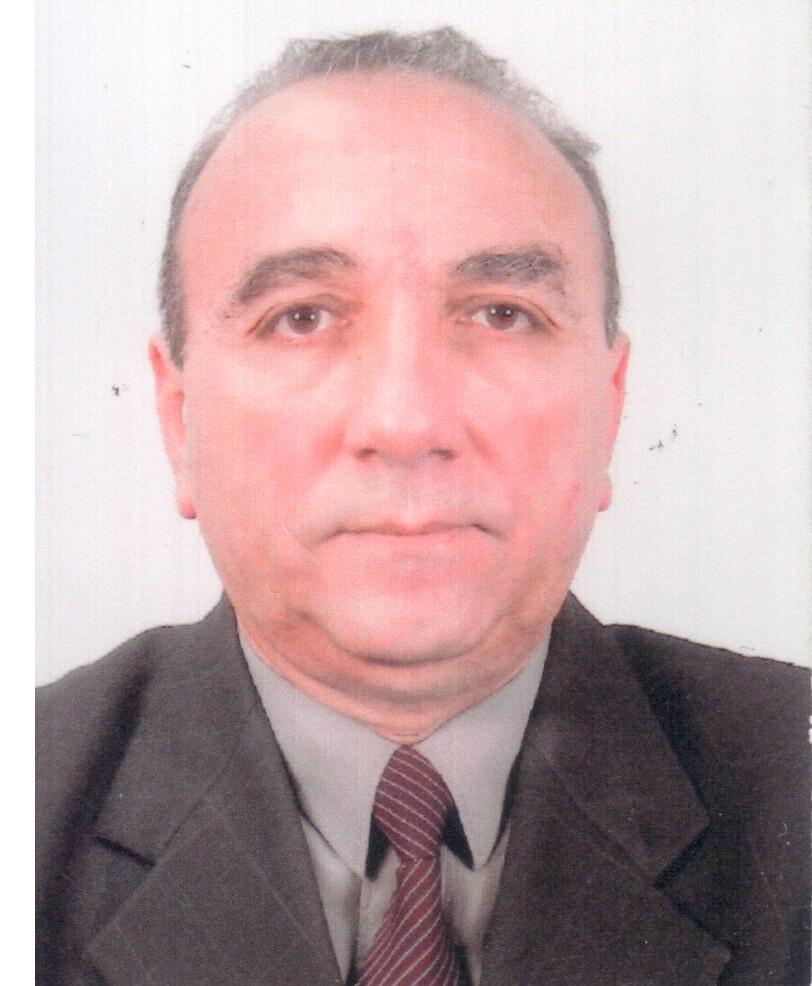
Svetozar Margenov (2024)
Biography:
Svetozar Margenov is a corresponding member of the Bulgarian Academy of Sciences (BAS) and a professor in Computational Mathematics. He graduated from the Faculty of Mathematics and Informatics of the Sofia University “St. Kliment Ohridski”, a PhD and a Doctor of Science form the BAS. The main scientific achievements of prof. Margenov are in the field of numerical methods for partial differential equations, numerical solution of fractional diffusion problems, multilevel iterative methods for ill-conditioned linear systems, parallel methods and algorithms, and supercomputer applications. He has published over 200 scientific papers and two monographs. Svetozar Margenov is the director of the Institute of Information and Communication Technologies (IICT-BAS) and head of the Department of Scientific Computing. He is a co-founder of the Bulgarian section of SIAM and its chairman for the first two mandates. Prof. Margenov has made a great contribution to the development of the modern Bulgarian HPC infrastructure and a high level of expertise in HPC applications. He currently leads the Center of Excellence in Informatics and ICT, within which the last Bulgarian petascale supercomputer HEMUS was recently opened. Prof. Svetozar Margenov was awarded by the BAS with the badge of honor "Marin Drinov" on a ribbon.
Svetozar Margenov is a corresponding member of the Bulgarian Academy of Sciences (BAS) and a professor in Computational Mathematics. He graduated from the Faculty of Mathematics and Informatics of the Sofia University “St. Kliment Ohridski”, a PhD and a Doctor of Science form the BAS. The main scientific achievements of prof. Margenov are in the field of numerical methods for partial differential equations, numerical solution of fractional diffusion problems, multilevel iterative methods for ill-conditioned linear systems, parallel methods and algorithms, and supercomputer applications. He has published over 200 scientific papers and two monographs. Svetozar Margenov is the director of the Institute of Information and Communication Technologies (IICT-BAS) and head of the Department of Scientific Computing. He is a co-founder of the Bulgarian section of SIAM and its chairman for the first two mandates. Prof. Margenov has made a great contribution to the development of the modern Bulgarian HPC infrastructure and a high level of expertise in HPC applications. He currently leads the Center of Excellence in Informatics and ICT, within which the last Bulgarian petascale supercomputer HEMUS was recently opened. Prof. Svetozar Margenov was awarded by the BAS with the badge of honor "Marin Drinov" on a ribbon.
Janusz Kacprzyk (2024)
Biography:
Janusz Kacprzyk is Professor of Computer Science at the Systems Research Institute, Polish Academy of Sciences, WIT - Warsaw School of Information Technology, AGH University of Science and Technology in Cracow, and Professor of Automatic Control at PIAP Industrial Institute of Automation and Measurements in Warsaw, Poland. He is Honorary Foreign Professor at the Department of Mathematics, Yli Normal University, Xinjiang, China. He is Full Member of the Polish Academy of Sciences, Member of Academia Europaea, European Academy of Sciences and Arts, European Academy of Sciences, International Academy of Systems and Cybernetics (IASCYS), Foreign Member of the: Bulgarian Academy of Sciences, Spanish Royal Academy of Economic and Financial Sciences (RACEF), Finnish Society of Sciences and Letters, Flemish Royal Academy of Belgium of Sciences and the Arts (KVAB), Russian Academy of Sciences. National Academy of Sciences of Ukraine, Lithuanian Academy of Sciences nad Accademia Nazionale di Scienze, lettere e Arti (Palermo). He was awarded with 8 honorary doctorates. He is Fellow of IEEE (Life), IET, IFSA, EurAI, IFIP, AAIA, AIIA, I2CICC, and SMIA. His main research interests include the use of modern computation computational and artificial intelligence tools, notably fuzzy logic, in systems science, decision making, optimization, control, data analysis and data mining, with applications in mobile robotics, systems modeling, ICT etc. He authored 7 books, (co)edited more than 150 volumes, (co)authored more than 650 papers, including ca. 150 in journals indexed by the WoS. He is listed in 2020 and 2021 ”World's 2% Top Scientists” by Stanford University, Elsevier (Scopus) and ScieTech Strategies and published in PLOS Biology Journal. He is the editor in chief of 8 book series at Springer, and of 2 journals, and is on the editorial boards of ca. 40 journals.. He is President of the Polish Operational and Systems Research Society, Past President of International Fuzzy Systems Association, and is a member of the Adcom (Administrative Committee) of the Computational Intelligence Society of the IEEE, and a member of the Board of Governors of the Systems, Man and Cybernetics Society of the IEEE.
Janusz Kacprzyk is Professor of Computer Science at the Systems Research Institute, Polish Academy of Sciences, WIT - Warsaw School of Information Technology, AGH University of Science and Technology in Cracow, and Professor of Automatic Control at PIAP Industrial Institute of Automation and Measurements in Warsaw, Poland. He is Honorary Foreign Professor at the Department of Mathematics, Yli Normal University, Xinjiang, China. He is Full Member of the Polish Academy of Sciences, Member of Academia Europaea, European Academy of Sciences and Arts, European Academy of Sciences, International Academy of Systems and Cybernetics (IASCYS), Foreign Member of the: Bulgarian Academy of Sciences, Spanish Royal Academy of Economic and Financial Sciences (RACEF), Finnish Society of Sciences and Letters, Flemish Royal Academy of Belgium of Sciences and the Arts (KVAB), Russian Academy of Sciences. National Academy of Sciences of Ukraine, Lithuanian Academy of Sciences nad Accademia Nazionale di Scienze, lettere e Arti (Palermo). He was awarded with 8 honorary doctorates. He is Fellow of IEEE (Life), IET, IFSA, EurAI, IFIP, AAIA, AIIA, I2CICC, and SMIA. His main research interests include the use of modern computation computational and artificial intelligence tools, notably fuzzy logic, in systems science, decision making, optimization, control, data analysis and data mining, with applications in mobile robotics, systems modeling, ICT etc. He authored 7 books, (co)edited more than 150 volumes, (co)authored more than 650 papers, including ca. 150 in journals indexed by the WoS. He is listed in 2020 and 2021 ”World's 2% Top Scientists” by Stanford University, Elsevier (Scopus) and ScieTech Strategies and published in PLOS Biology Journal. He is the editor in chief of 8 book series at Springer, and of 2 journals, and is on the editorial boards of ca. 40 journals.. He is President of the Polish Operational and Systems Research Society, Past President of International Fuzzy Systems Association, and is a member of the Adcom (Administrative Committee) of the Computational Intelligence Society of the IEEE, and a member of the Board of Governors of the Systems, Man and Cybernetics Society of the IEEE.

Dee Bruce Sun (2024)
Biography:
Dee Bruce Sun, Emeritus Professor of Management at California State University - Long Beach. He has also served China Construction Bank as the GM of Investment Banking Department and a director of the IPO Office, and Shenzhen Development Bank as CIO. He achieves many management and IT projects and awards in China; publishes 25 books in Chinese; and becomes influential through his newspaper columns. He holds Ph.D. in Management (UT-Austin, 1988) and M.A. in Economics (OSU-Columbus, 1983) degrees. He was the President of Chinese Economist Society (1988-89), and a Fulbright Scholar to China (1995-96).
Dee Bruce Sun, Emeritus Professor of Management at California State University - Long Beach. He has also served China Construction Bank as the GM of Investment Banking Department and a director of the IPO Office, and Shenzhen Development Bank as CIO. He achieves many management and IT projects and awards in China; publishes 25 books in Chinese; and becomes influential through his newspaper columns. He holds Ph.D. in Management (UT-Austin, 1988) and M.A. in Economics (OSU-Columbus, 1983) degrees. He was the President of Chinese Economist Society (1988-89), and a Fulbright Scholar to China (1995-96).
